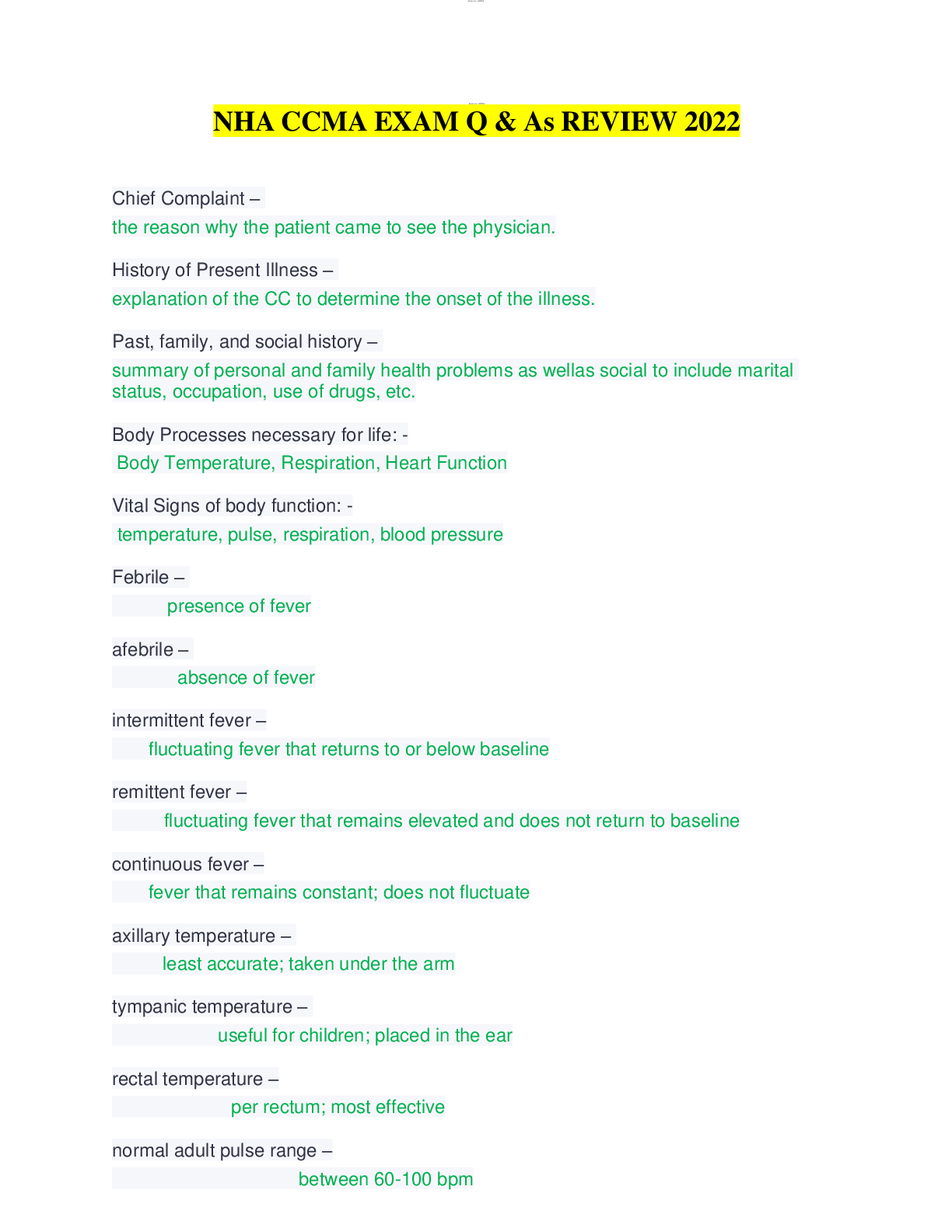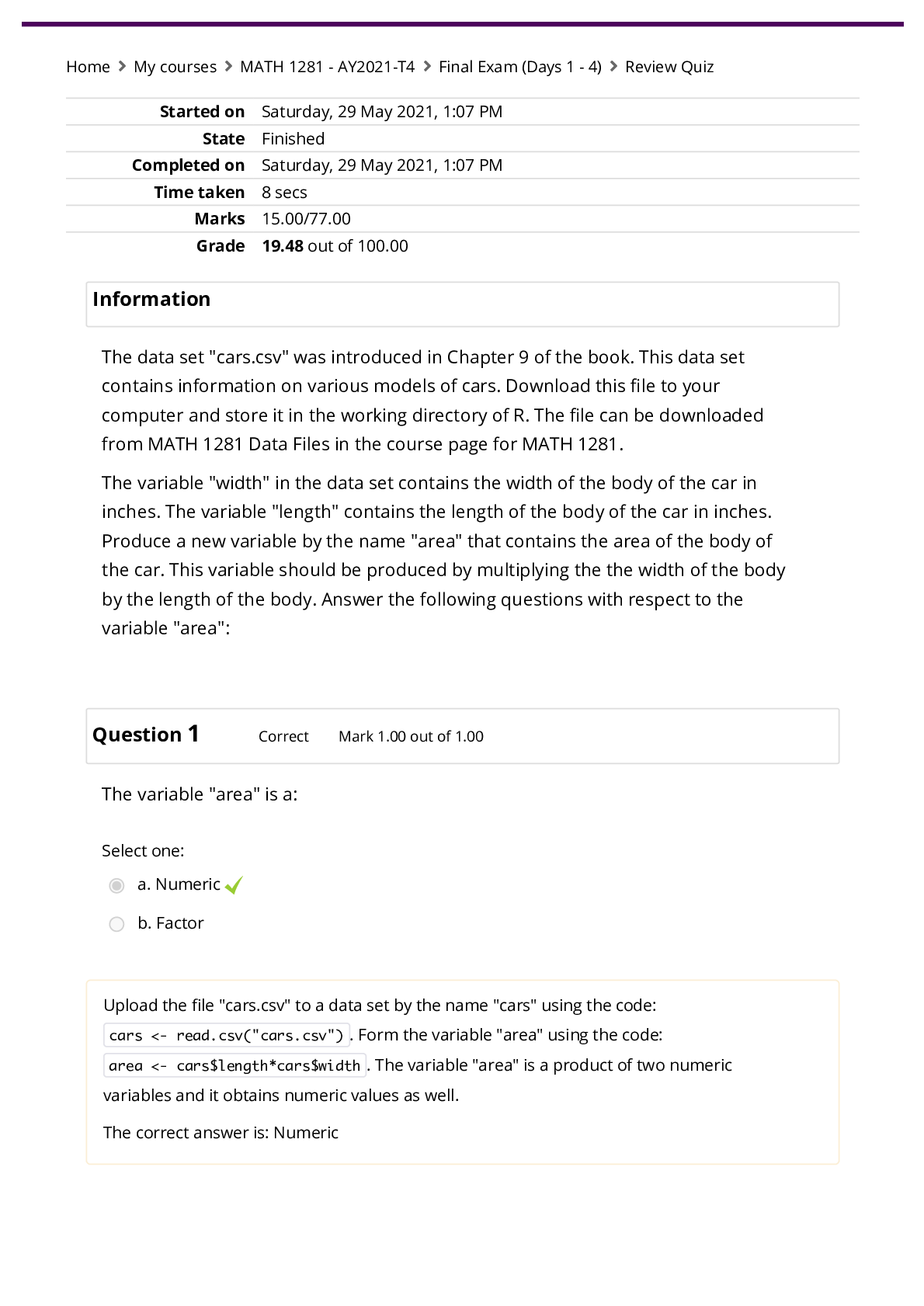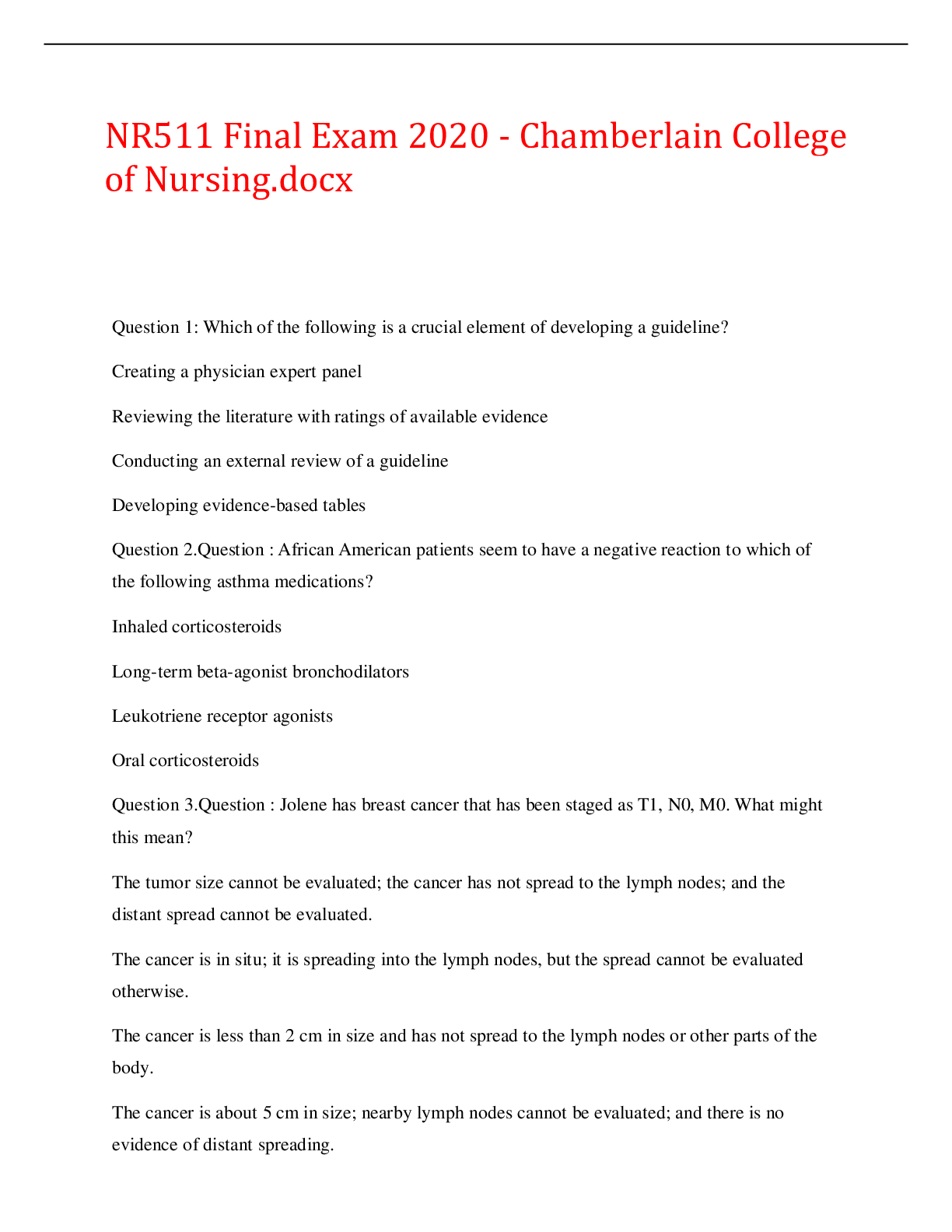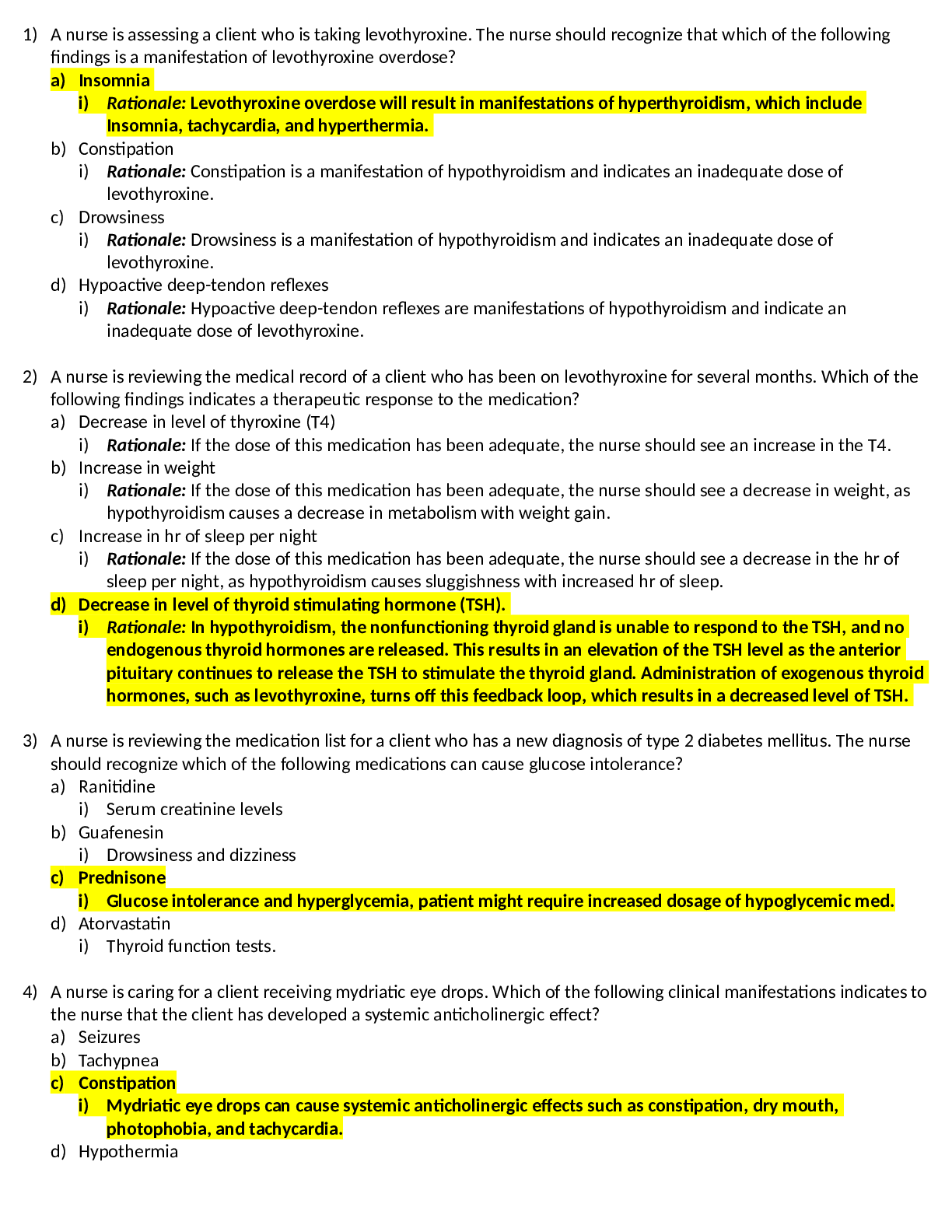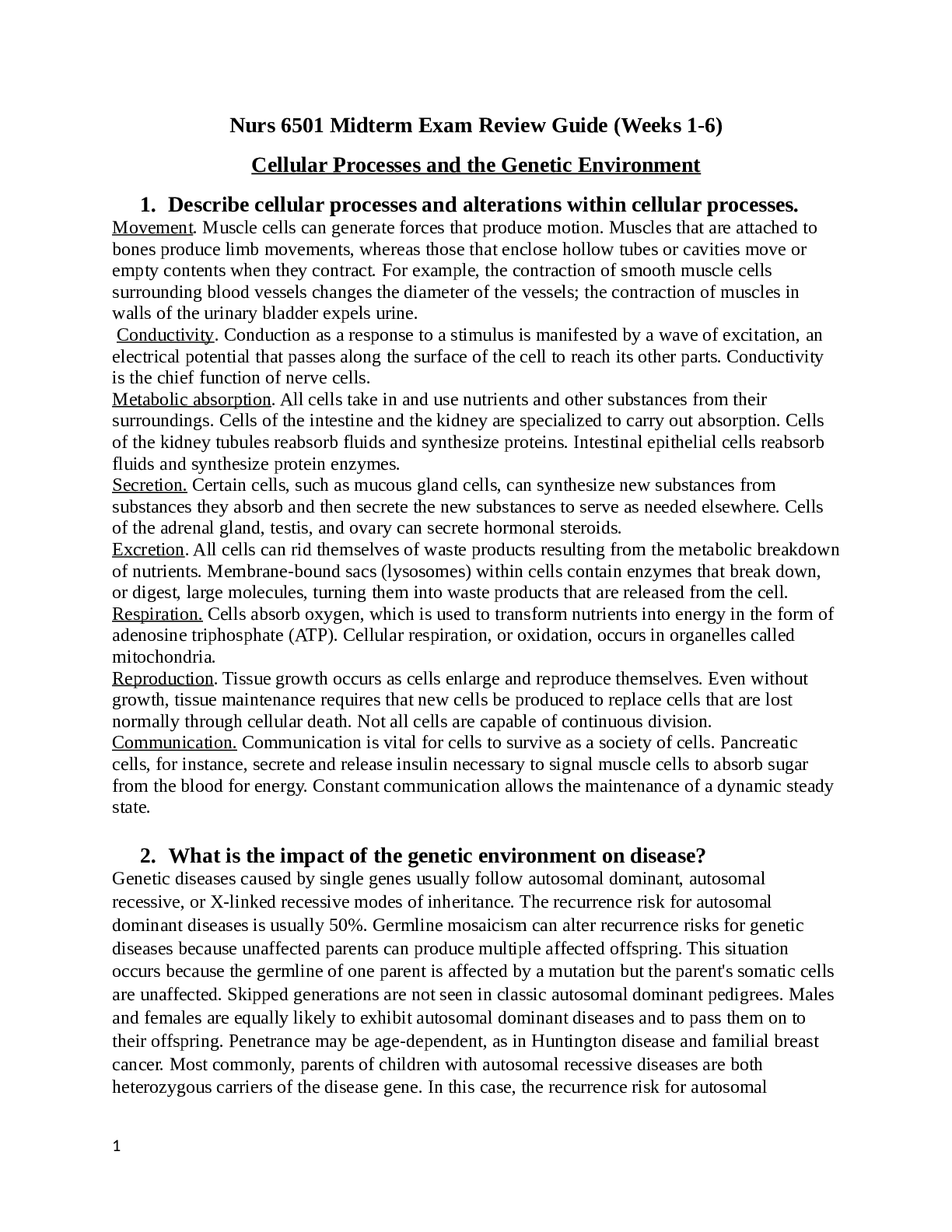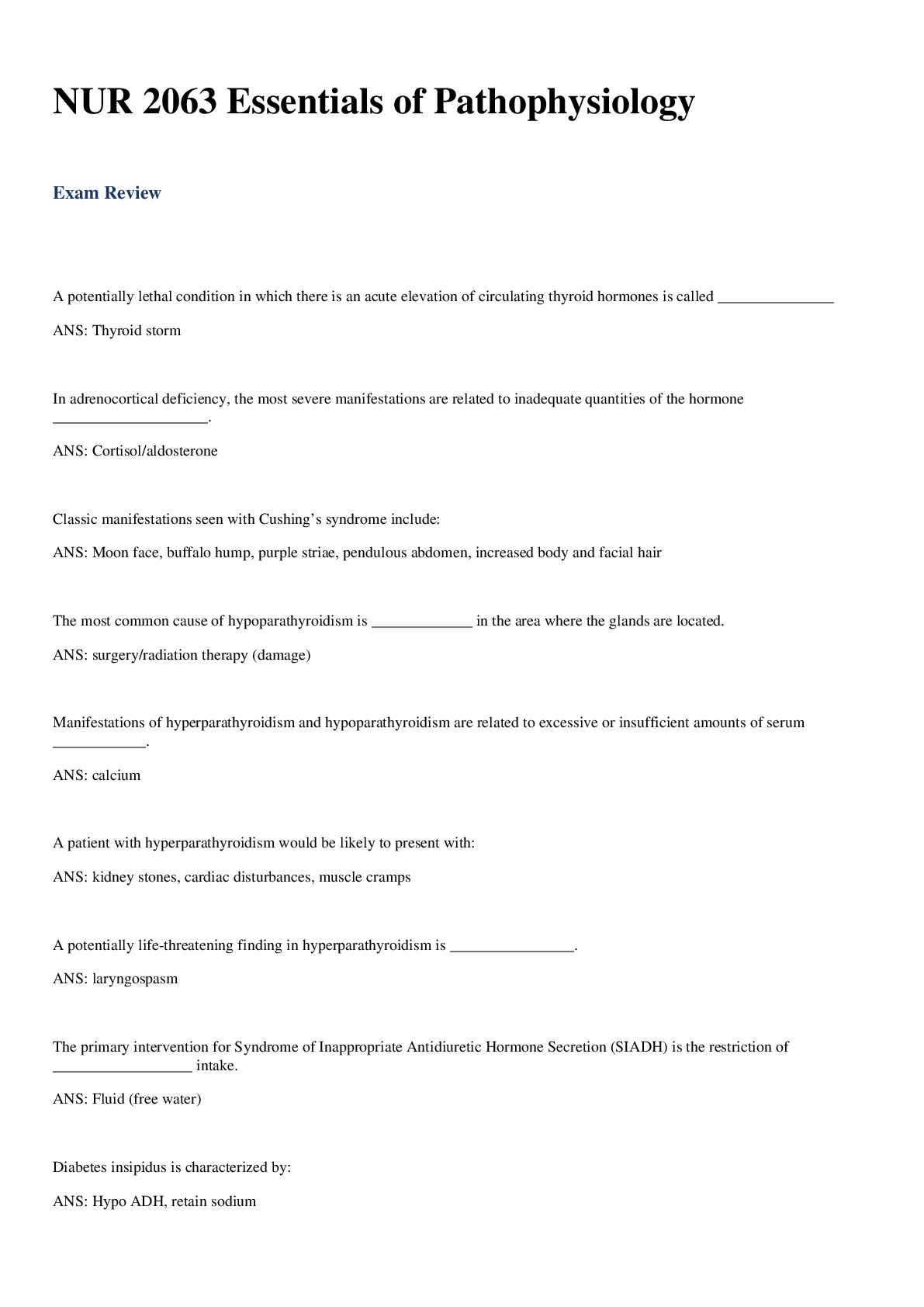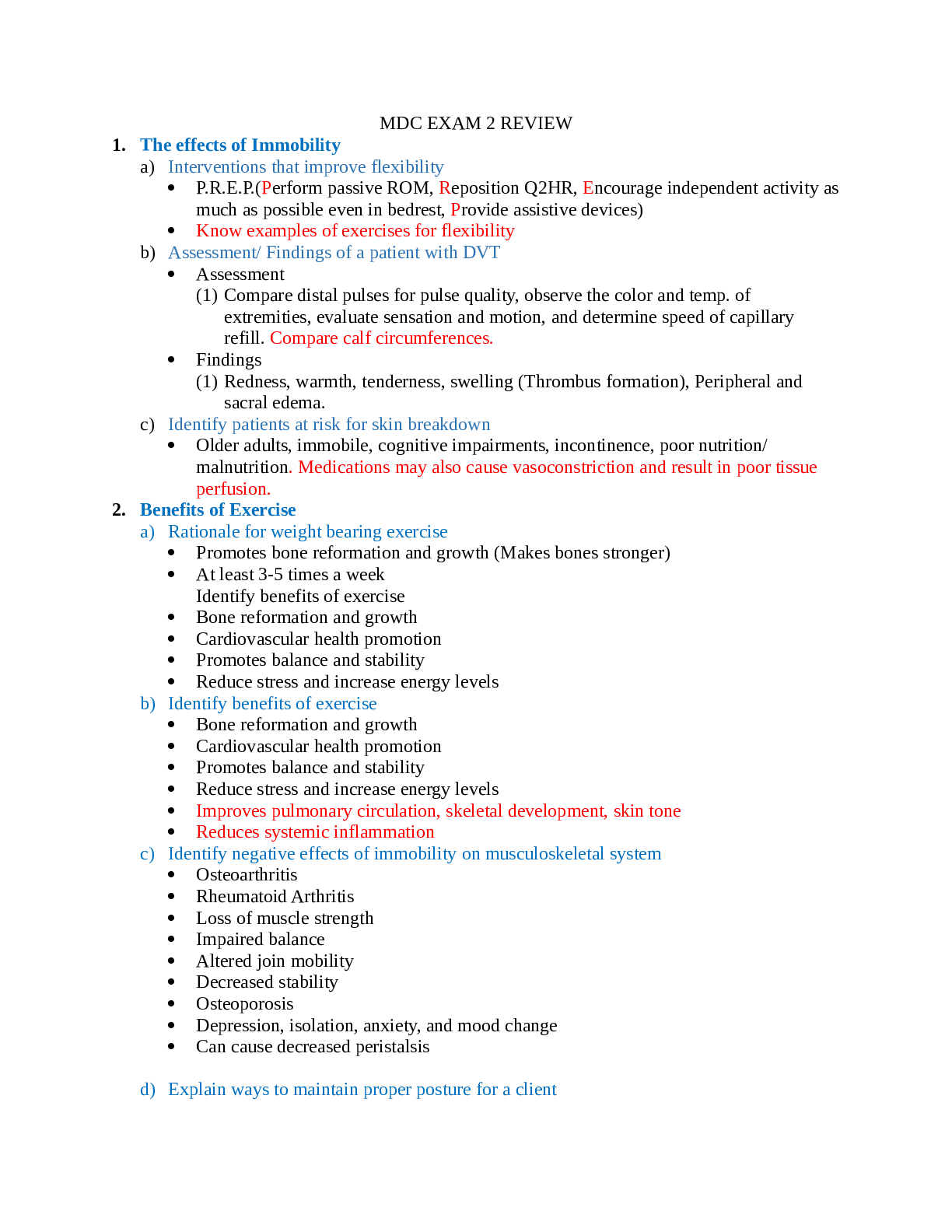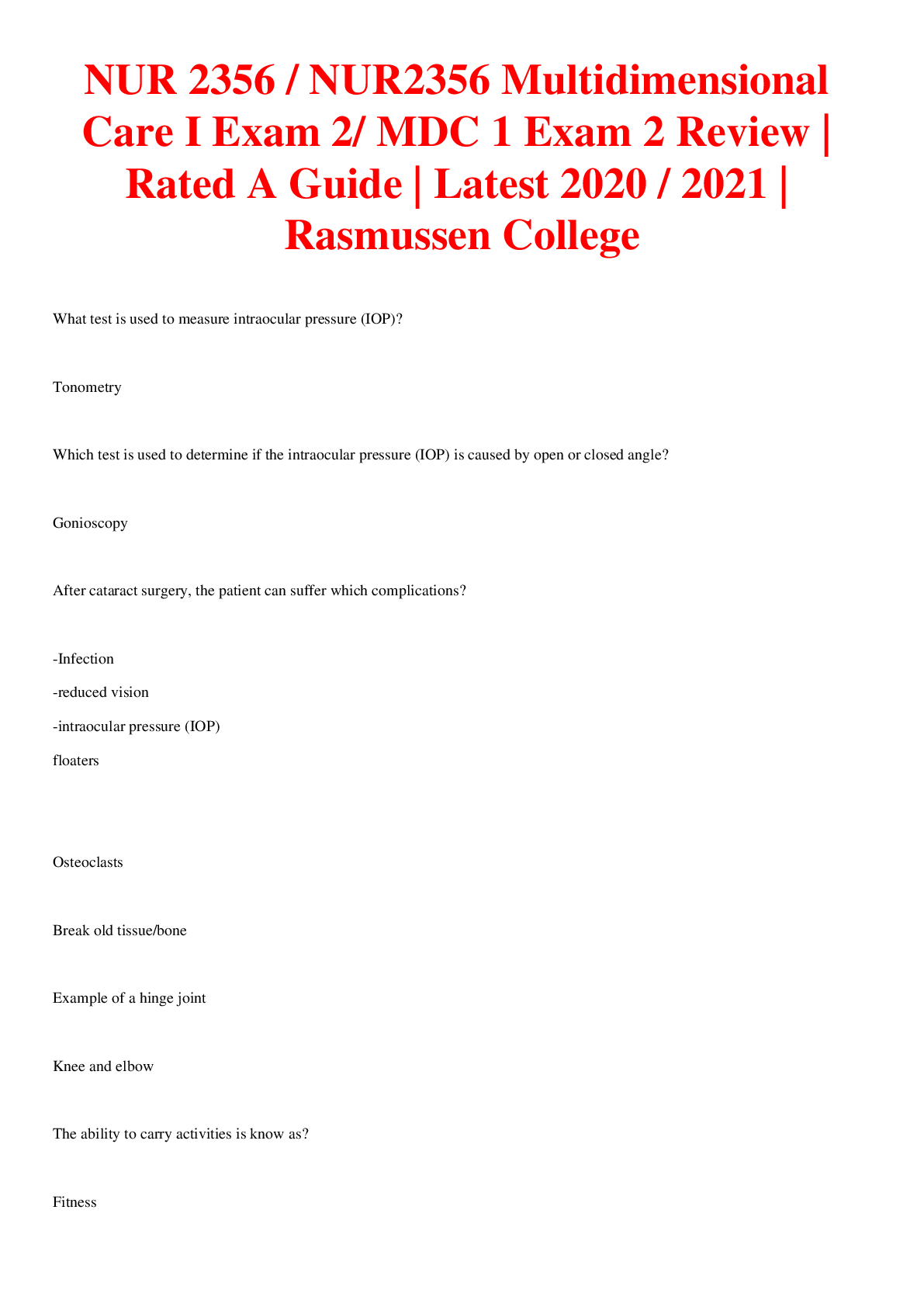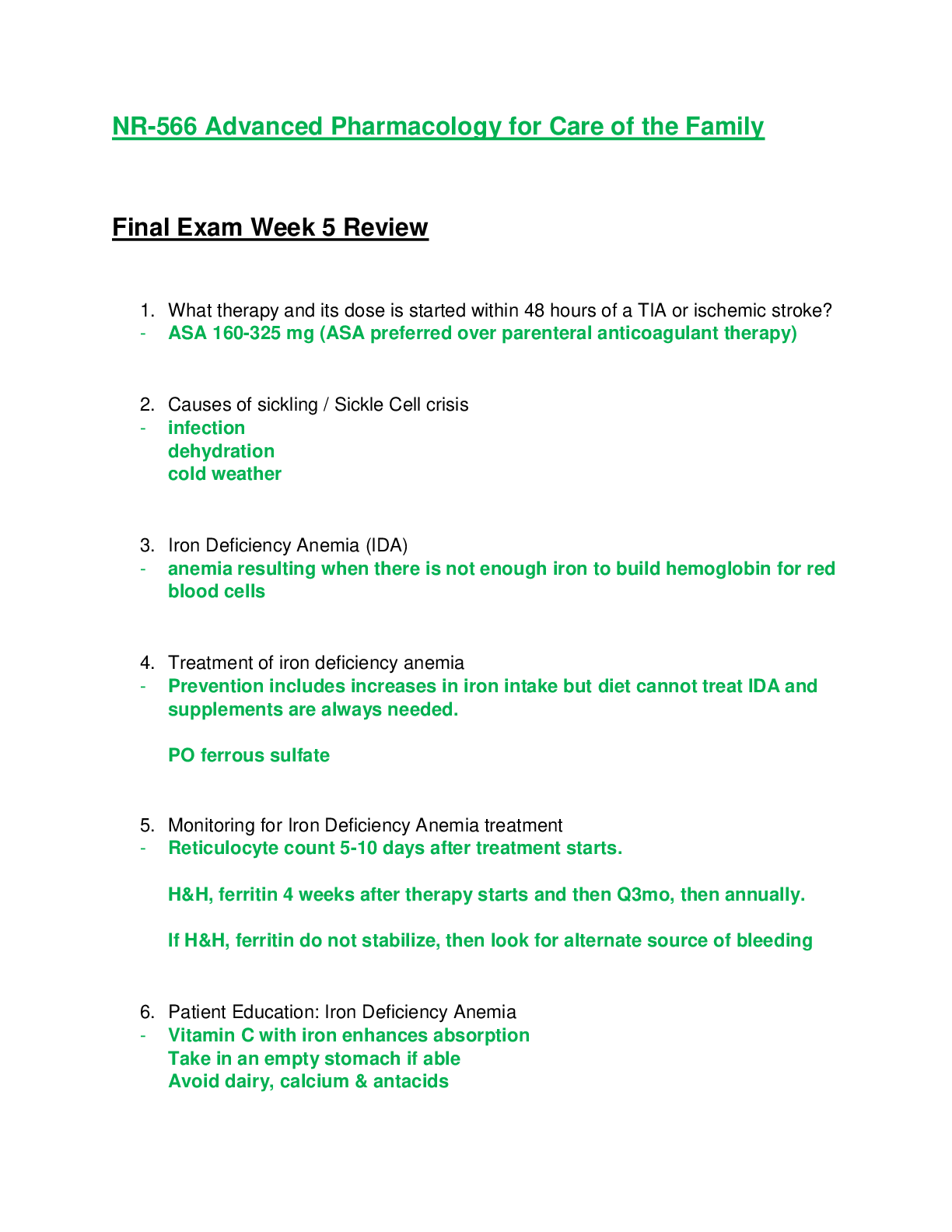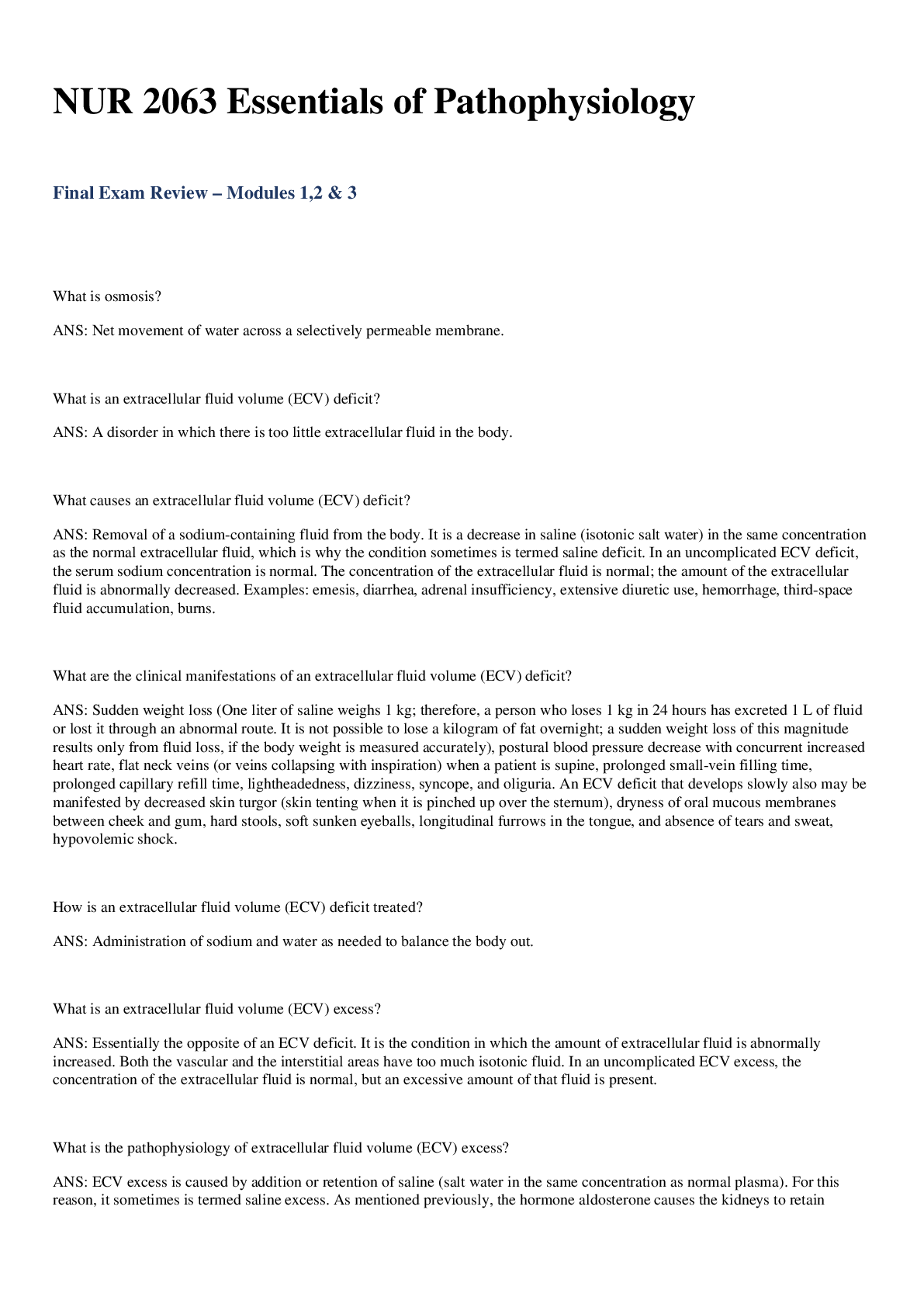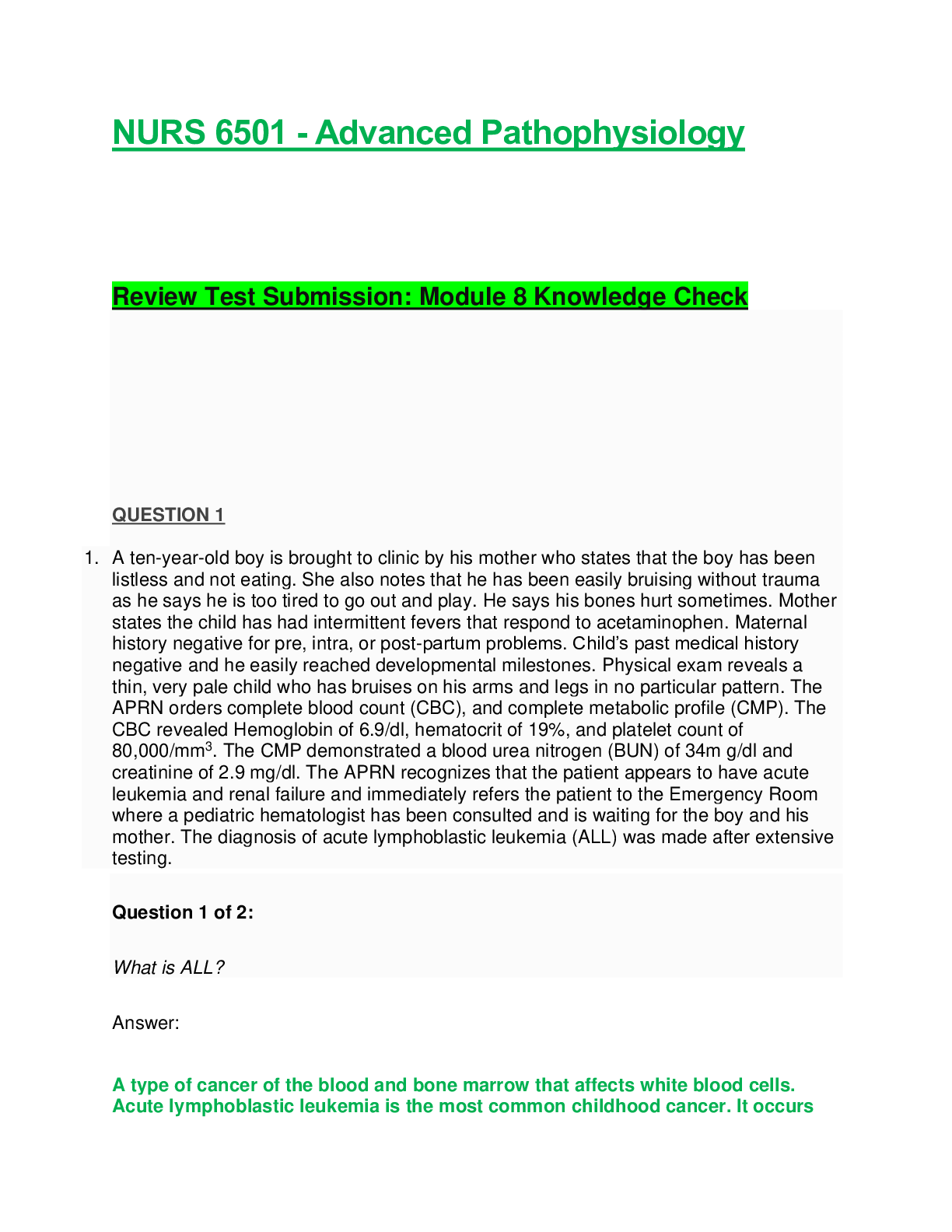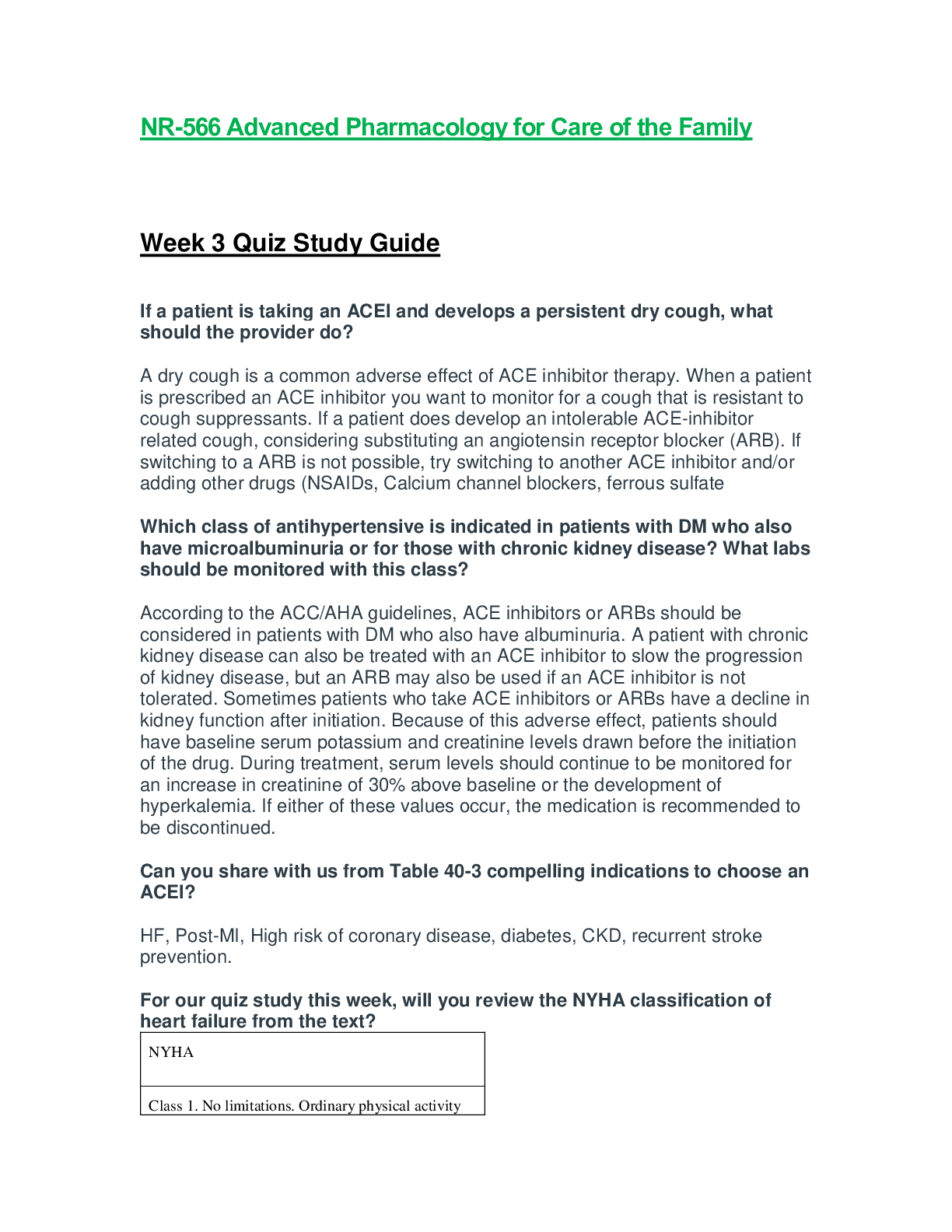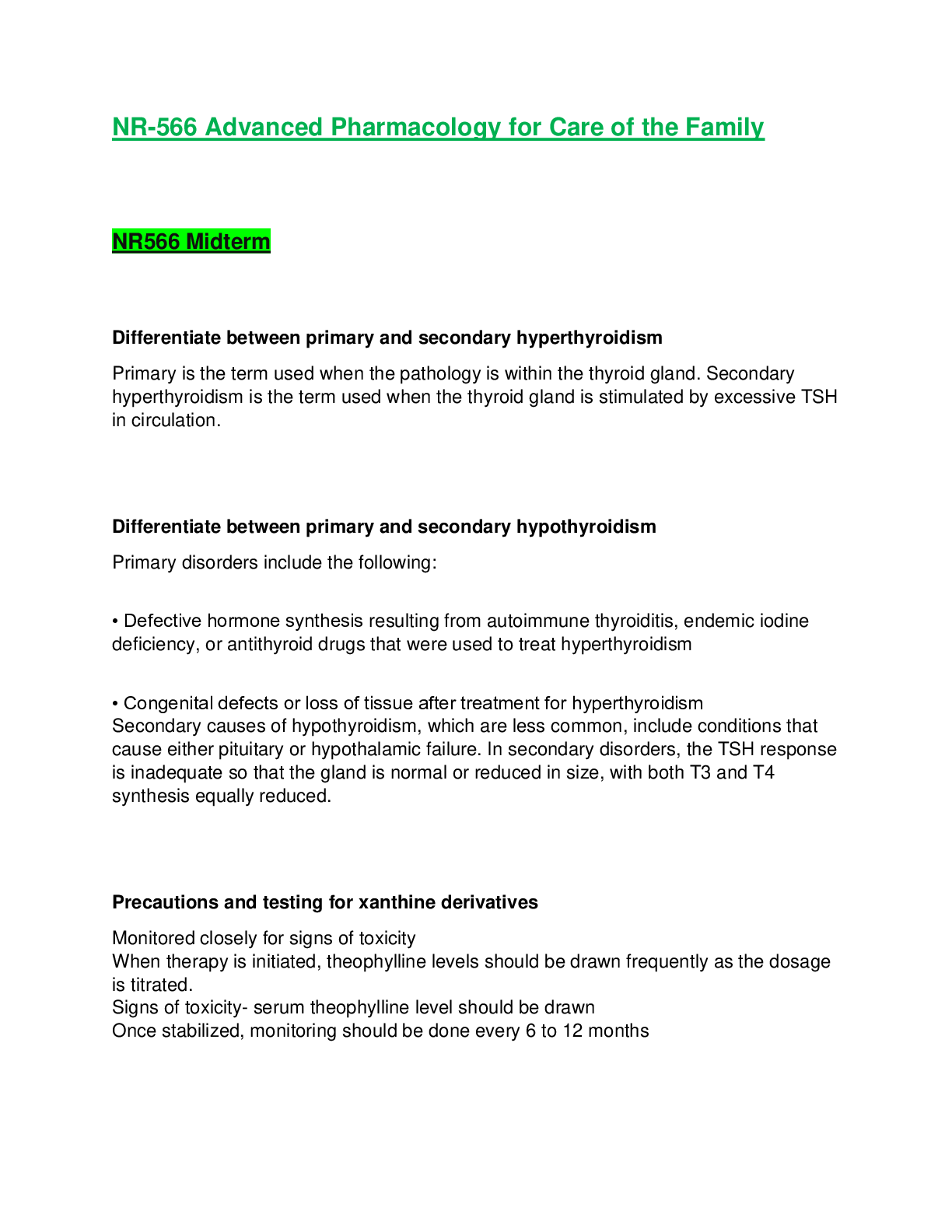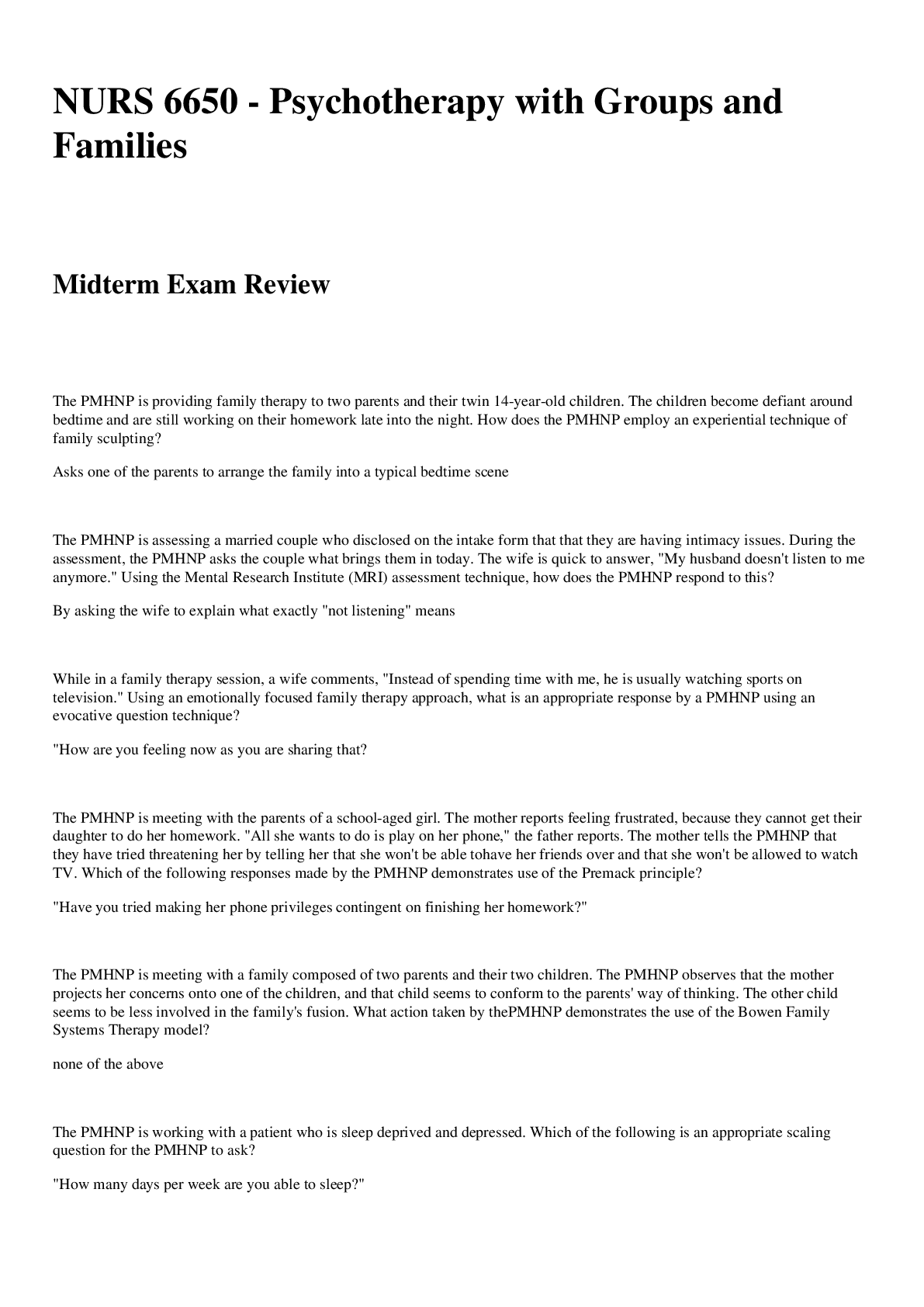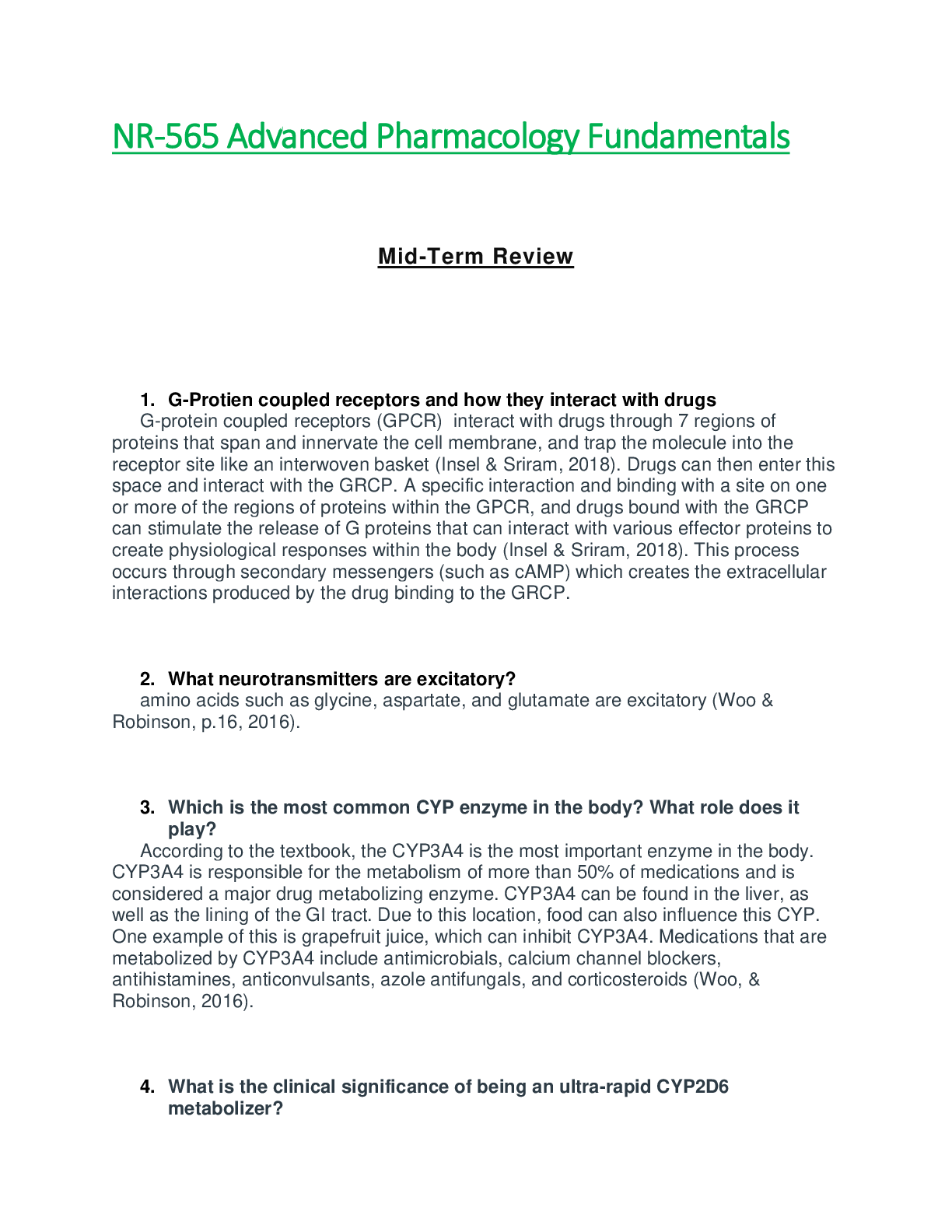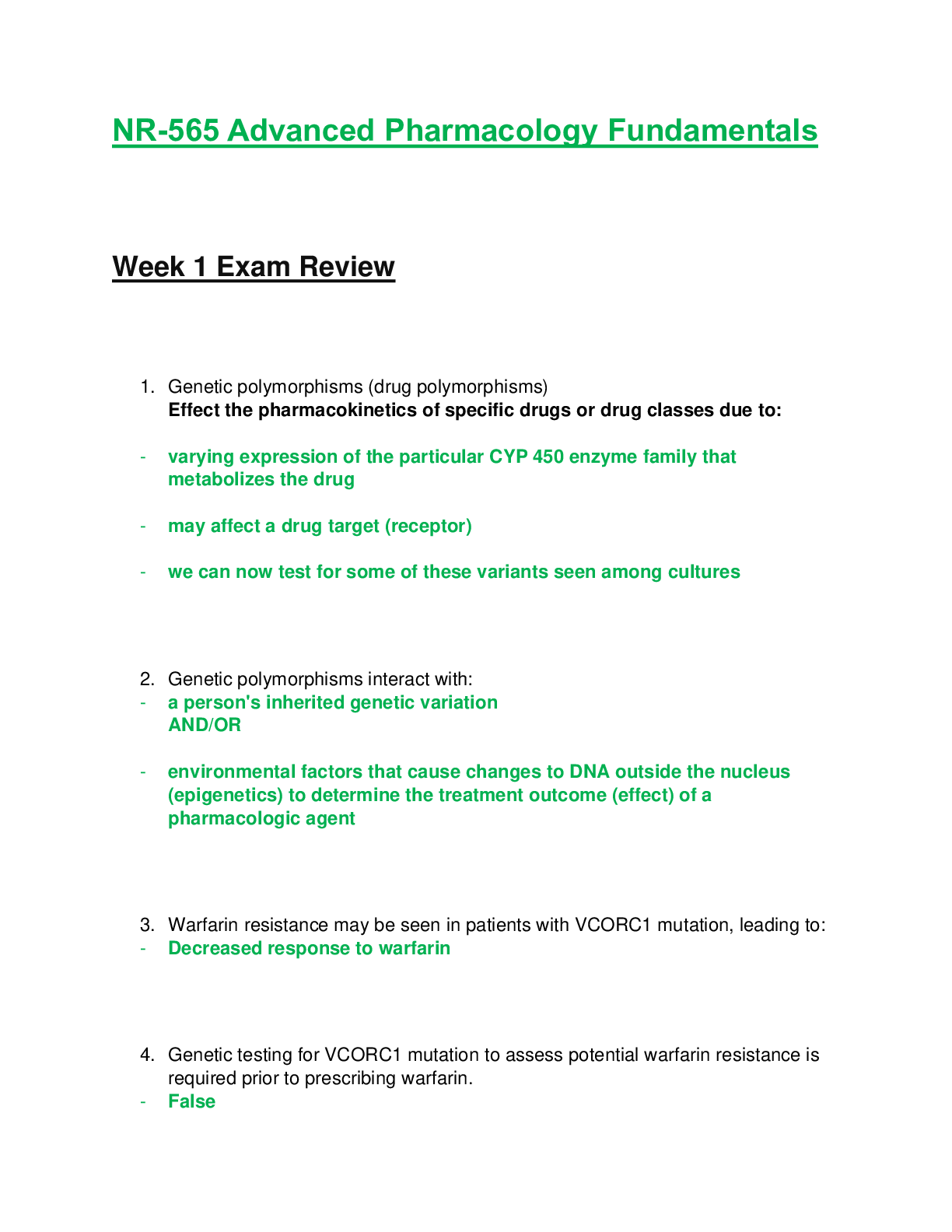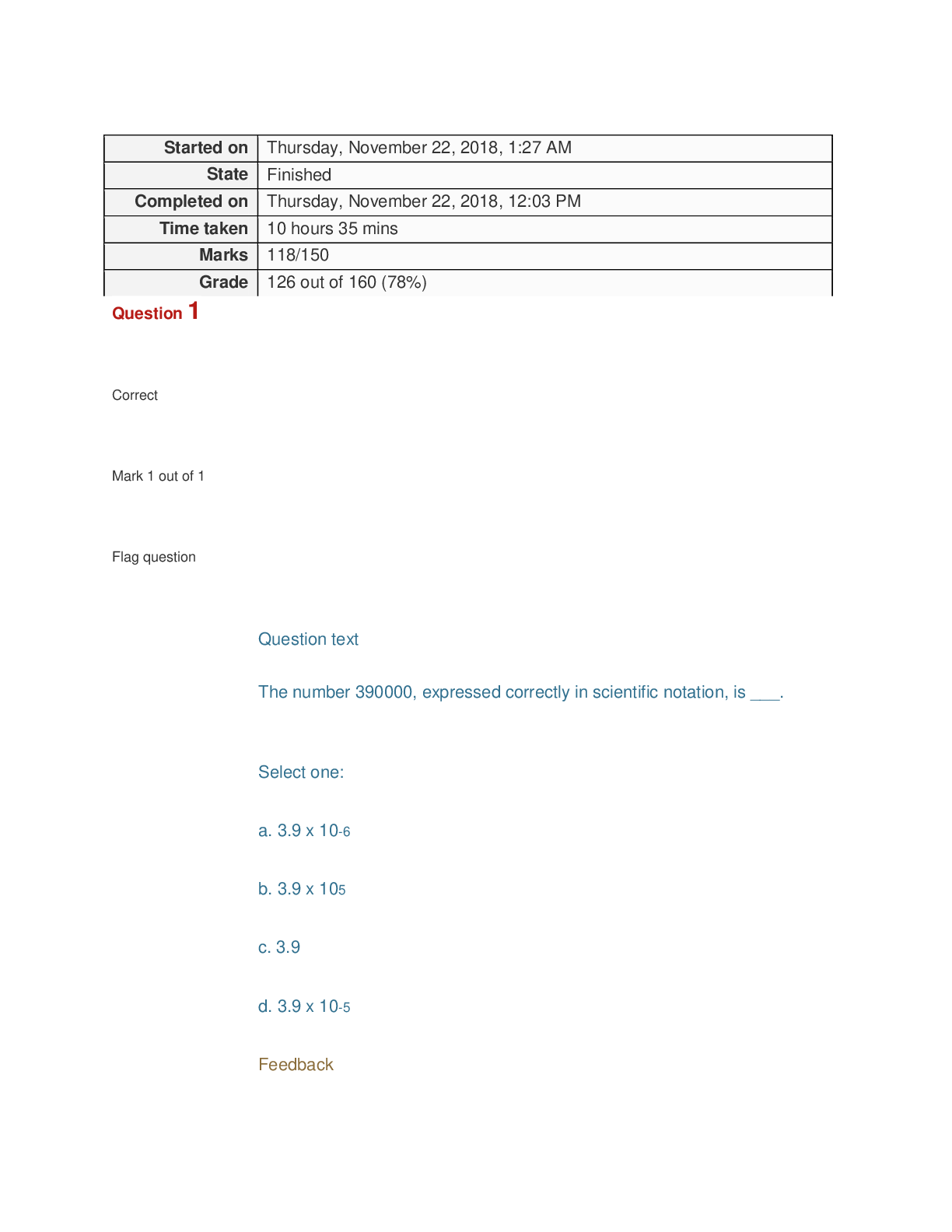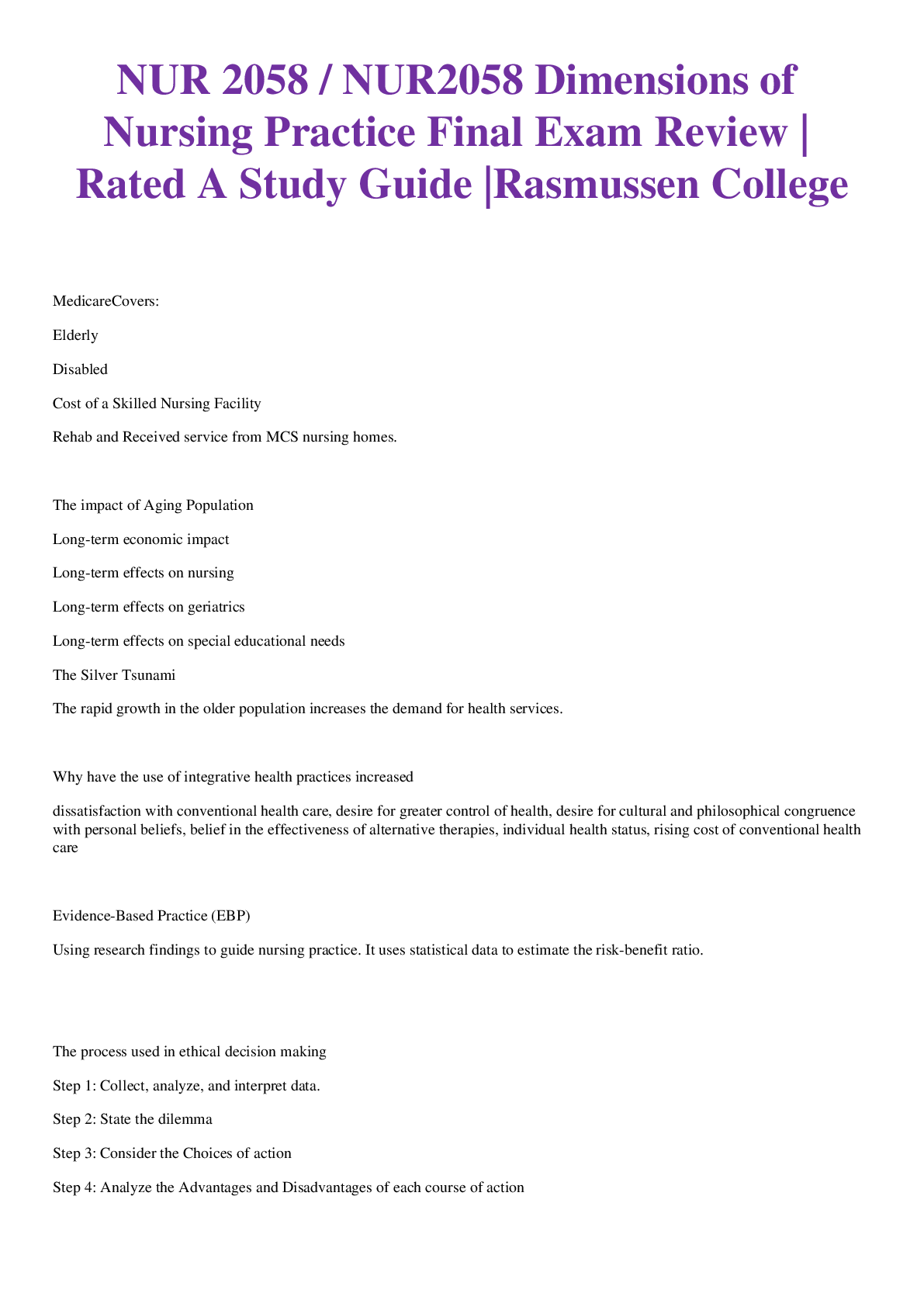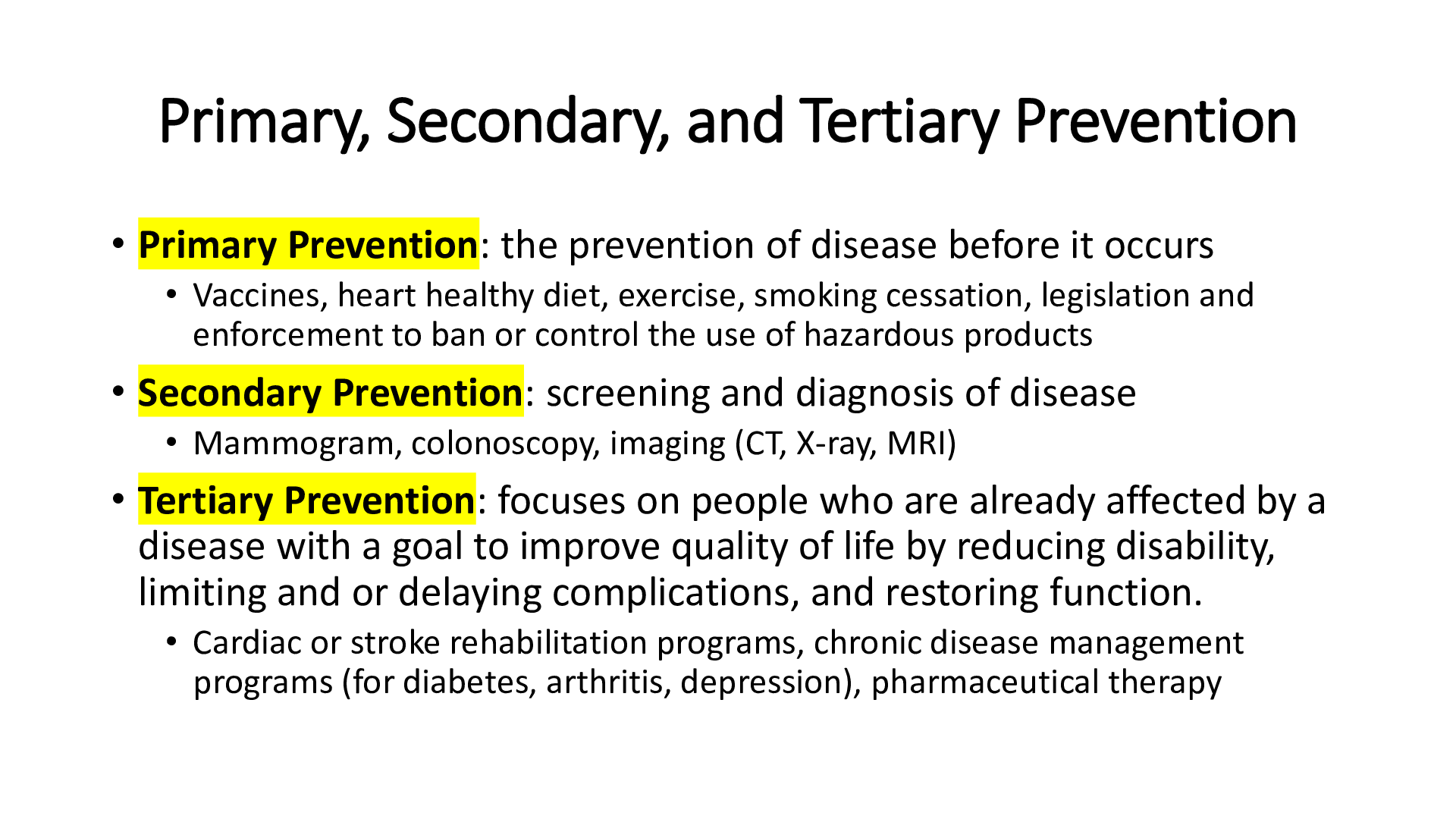*NURSING > EXAM REVIEW > NR 293 ATI Pharmacology Final Review Question and Answers 2020/2021 – Chamberlain (All)
NR 293 ATI Pharmacology Final Review Question and Answers 2020/2021 – Chamberlain
Document Content and Description Below
1) A nurse is assessing a client who is taking levothyroxine. The nurse should recognize that which of the following findings is a manifestation of levothyroxine overdose? a) Insomnia i) Rationale: ... Levothyroxine overdose will result in manifestations of hyperthyroidism, which include Insomnia, tachycardia, and hyperthermia. b) Constipation i) Rationale: Constipation is a manifestation of hypothyroidism and indicates an inadequate dose of levothyroxine. c) Drowsiness i) Rationale: Drowsiness is a manifestation of hypothyroidism and indicates an inadequate dose of levothyroxine. d) Hypoactive deep-tendon reflexes i) Rationale: Hypoactive deep-tendon reflexes are manifestations of hypothyroidism and indicate an inadequate dose of levothyroxine. 2) A nurse is reviewing the medical record of a client who has been on levothyroxine for several months. Which of the following findings indicates a therapeutic response to the medication? a) Decrease in level of thyroxine (T4) i) Rationale: If the dose of this medication has been adequate, the nurse should see an increase in the T4. b) Increase in weight i) Rationale: If the dose of this medication has been adequate, the nurse should see a decrease in weight, as hypothyroidism causes a decrease in metabolism with weight gain. c) Increase in hr of sleep per night i) Rationale: If the dose of this medication has been adequate, the nurse should see a decrease in the hr of sleep per night, as hypothyroidism causes sluggishness with increased hr of sleep. d) Decrease in level of thyroid stimulating hormone (TSH). i) Rationale: In hypothyroidism, the nonfunctioning thyroid gland is unable to respond to the TSH, and no endogenous thyroid hormones are released. This results in an elevation of the TSH level as the anterior pituitary continues to release the TSH to stimulate the thyroid gland. Administration of exogenous thyroid hormones, such as levothyroxine, turns off this feedback loop, which results in a decreased level of TSH. 3) A nurse is reviewing the medication list for a client who has a new diagnosis of type 2 diabetes mellitus. The nurse should recognize which of the following medications can cause glucose intolerance? a) Ranitidine i) Serum creatinine levels b) Guafenesin i) Drowsiness and dizziness c) Prednisone i) Glucose intolerance and hyperglycemia, patient might require increased dosage of hypoglycemic med. d) Atorvastatin i) Thyroid function tests. 4) A nurse is caring for a client receiving mydriatic eye drops. Which of the following clinical manifestations indicates to the nurse that the client has developed a systemic anticholinergic effect? a) Seizures b) Tachypnea c) Constipation i) Mydriatic eye drops can cause systemic anticholinergic effects such as constipation, dry mouth, photophobia, and tachycardia. d) Hypothermia 5) A nurse is caring for a client who has heart failure and is receiving IV furosemide. The nurse should monitor the client for which of the following electrolyte imbalances? a) Hypernatremia i) Rationale: The nurse should monitor the client who is receiving IV furosemide for hyponatremia. b) Hyperuricemia i) Rationale: The nurse should monitor the client who is receiving IV furosemide for hyperuricemia. The nurse should instruct the client to notify the provider for any tenderness or swelling of the joints. c) Hypercalcemia i) Rationale: The nurse should monitor the client who is receiving IV furosemide for hypocalcemia. d) Hyperchloremia i) Rationale: The nurse should monitor the client who is receiving IV furosemide for hypochloremia. 6) A nurse is talking to a client who is taking a calcium supplement for osteoporosis. The client tells the nurse she is experiencing flank pain. Which of the following adverse effects should the nurse suspect? a) Renal stones 7) A nurse is caring for a client who is prescribed warfarin therapy for an artificial heart valve. Which of the following laboratory values should the nurse monitor for a therapeutic effect of warfarin? a) Hemoglobin b) Prothrombin time (PT) i) Rationale: This test is used to monitor warfarin therapy. For a client receiving full anticoagulant therapy,should typically be approximately two to three times the normal value, depending on the indication for therapeutic anticoagulation. c) Bleeding time d) A ...........................................................CONTINUED [Show More]
Last updated: 1 year ago
Preview 1 out of 38 pages
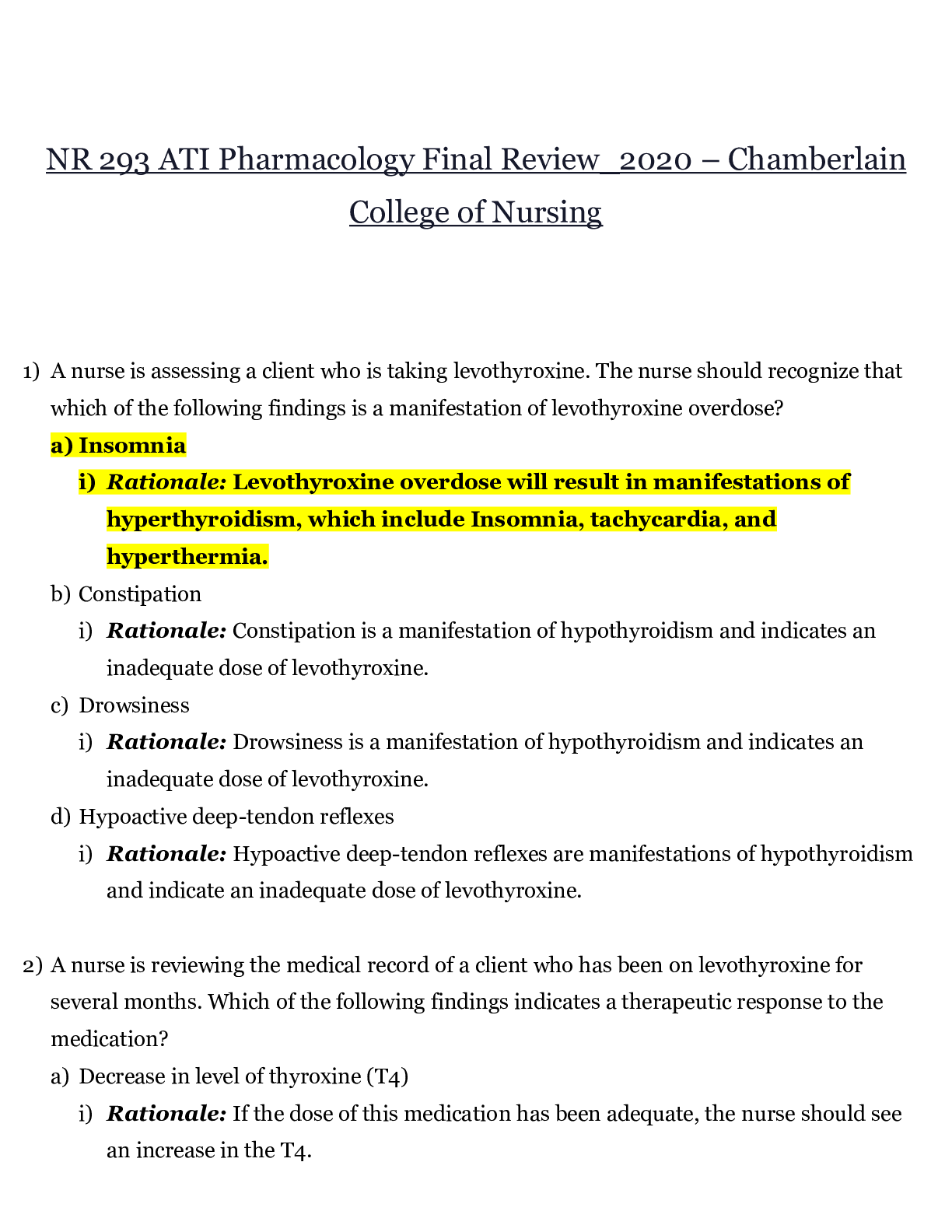
Reviews( 0 )
Document information
Connected school, study & course
About the document
Uploaded On
Dec 10, 2021
Number of pages
38
Written in
Additional information
This document has been written for:
Uploaded
Dec 10, 2021
Downloads
0
Views
44

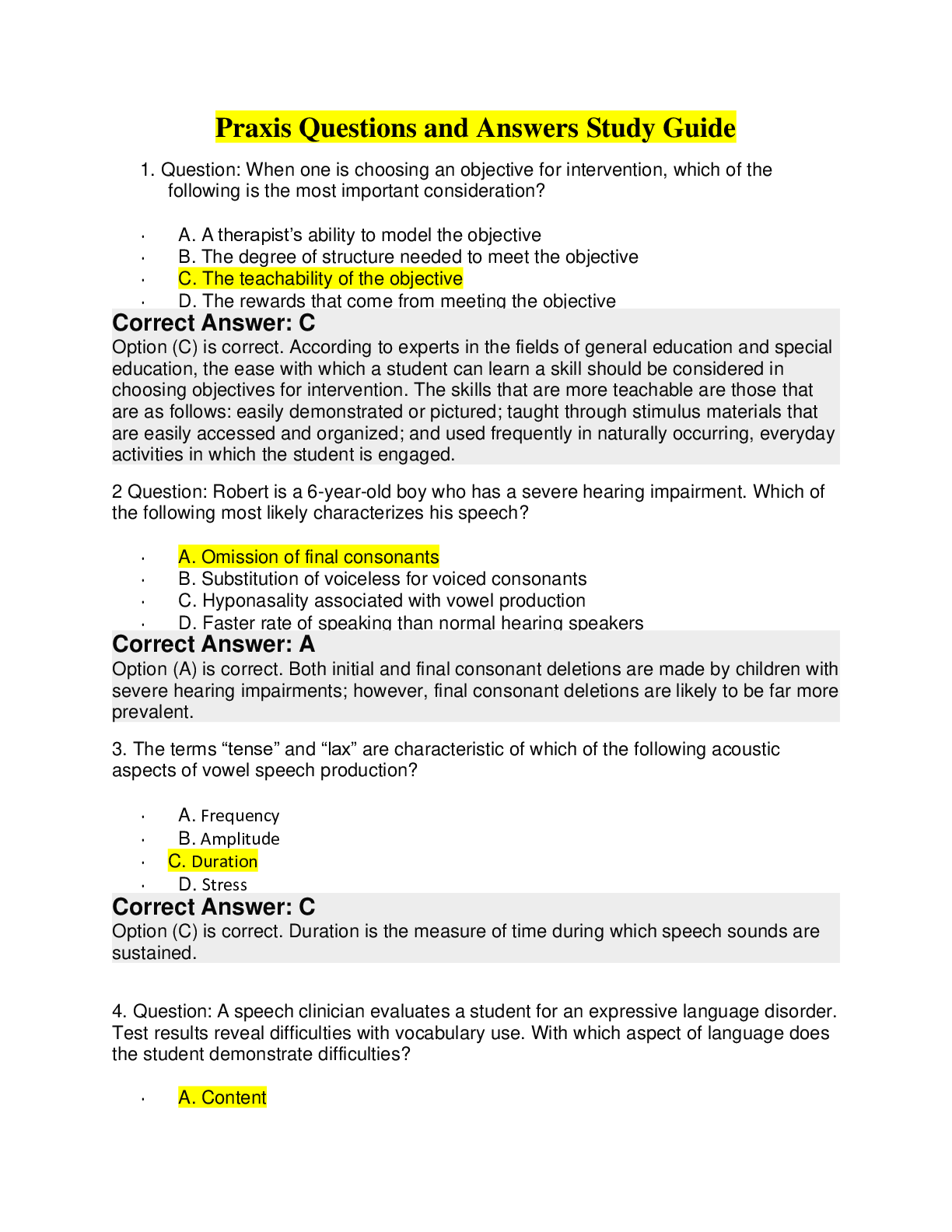
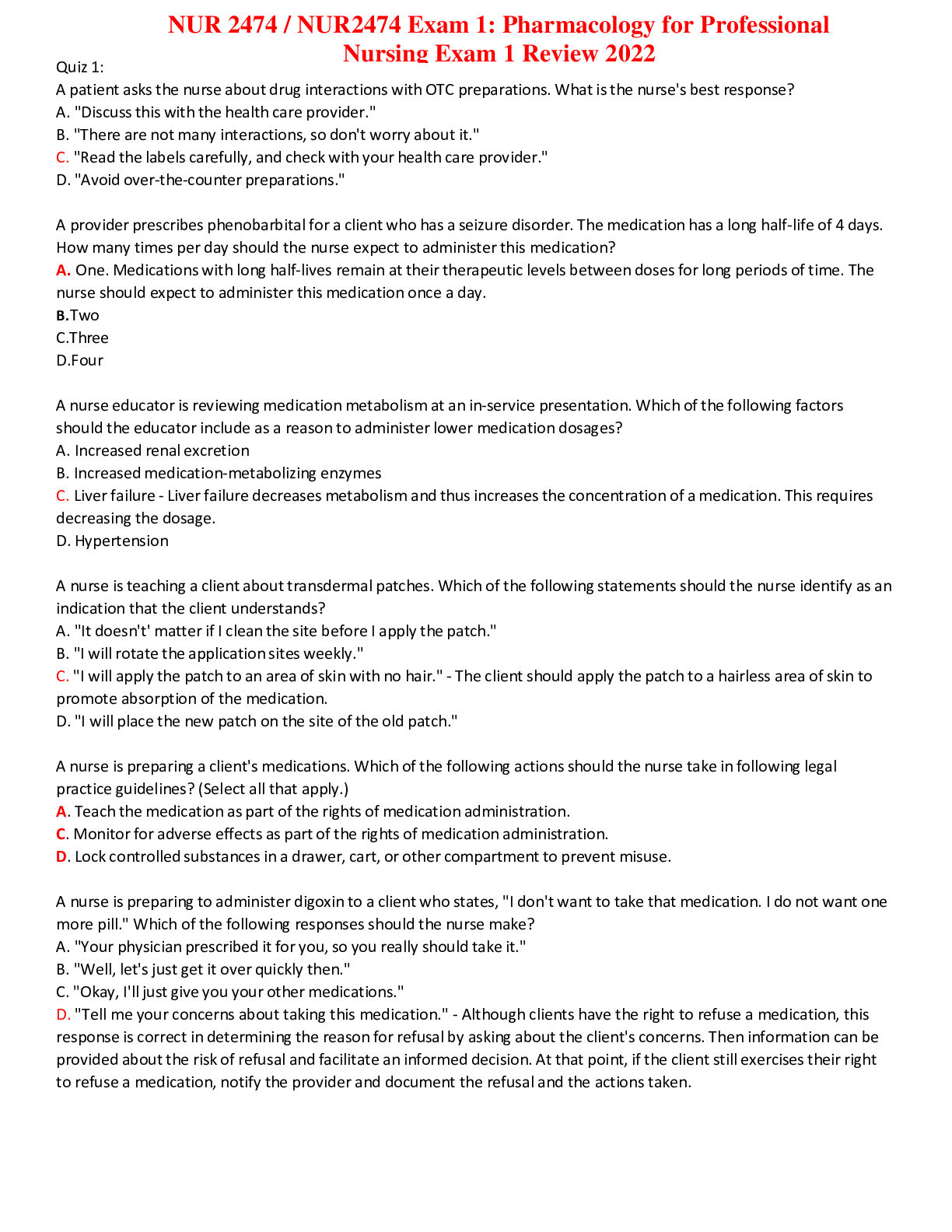
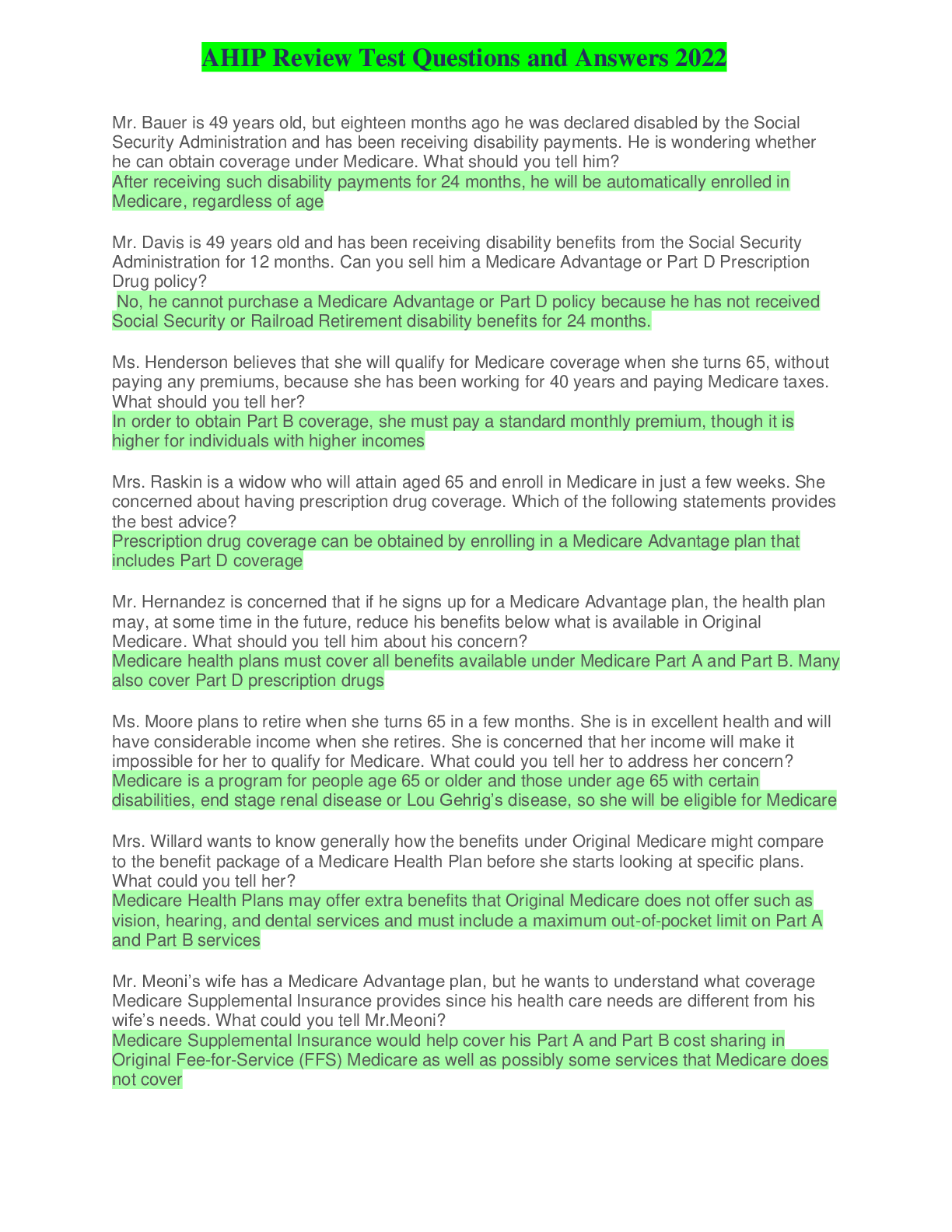
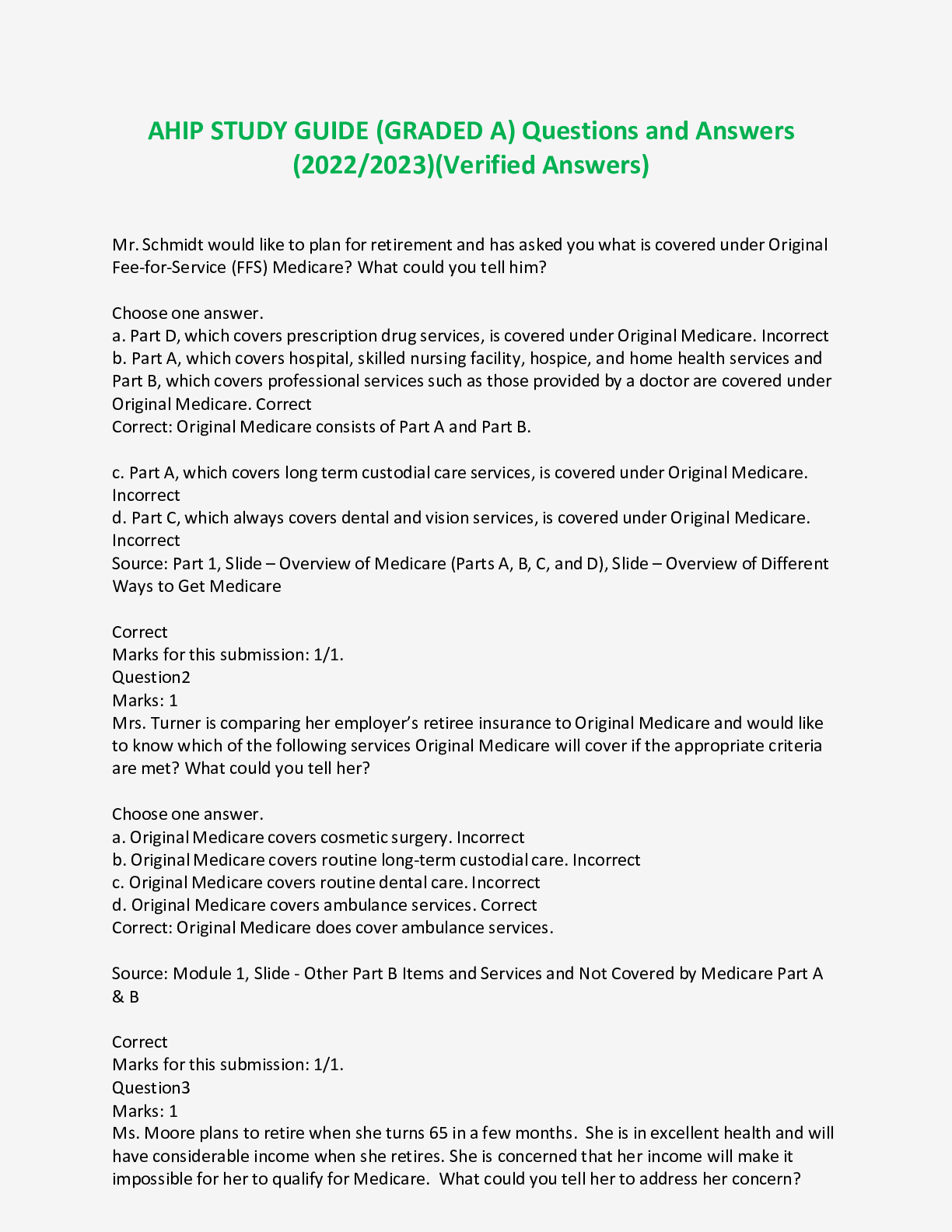
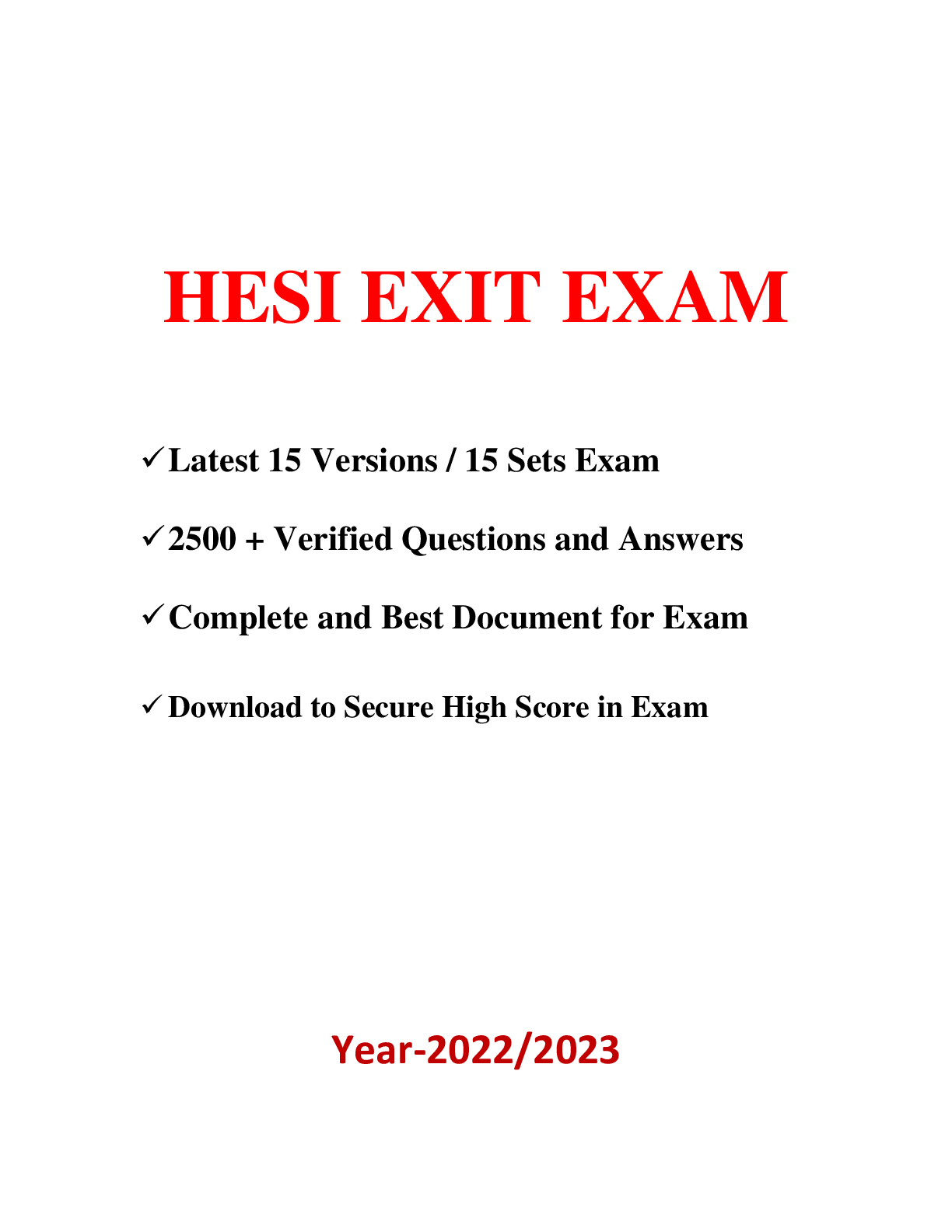
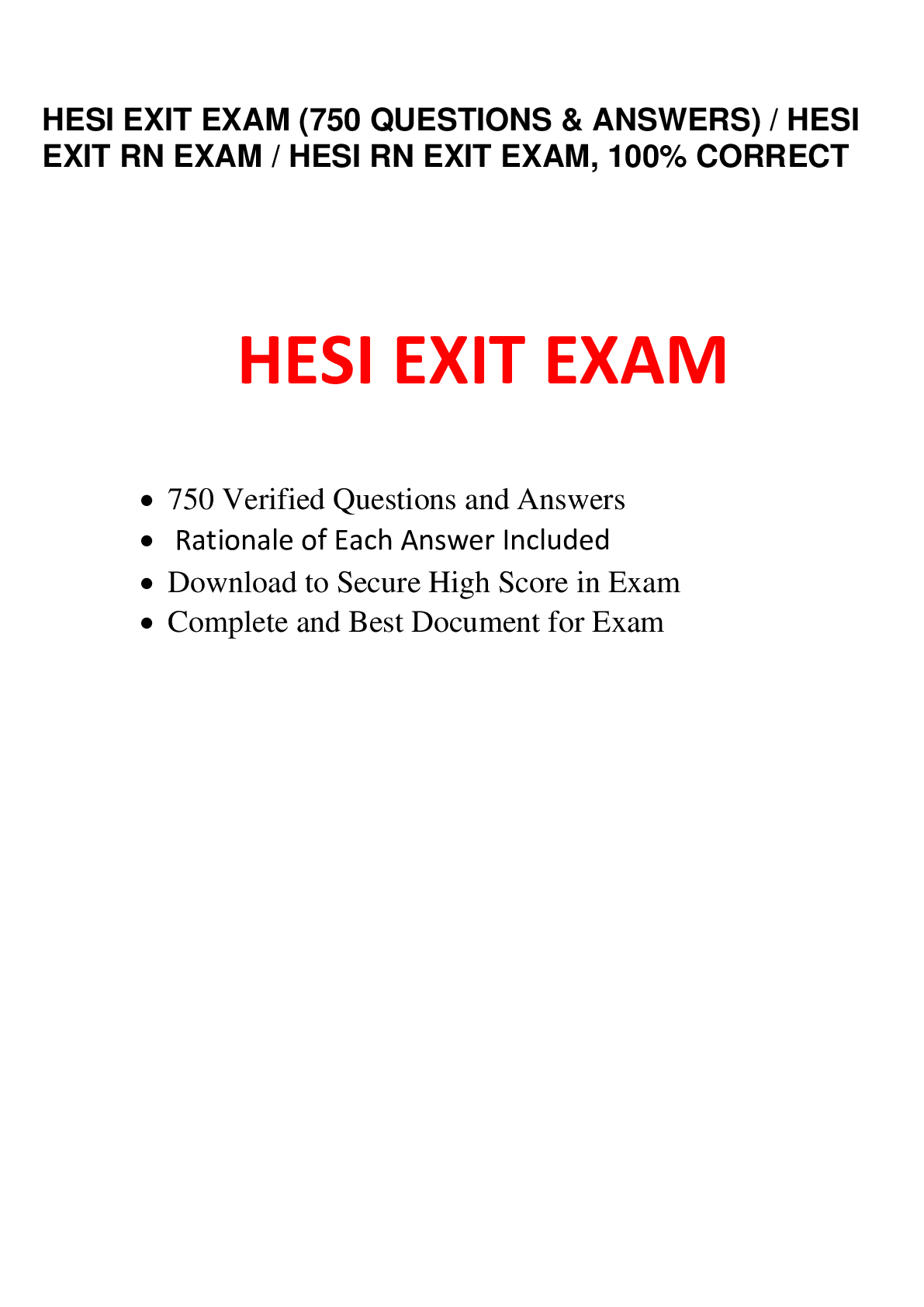
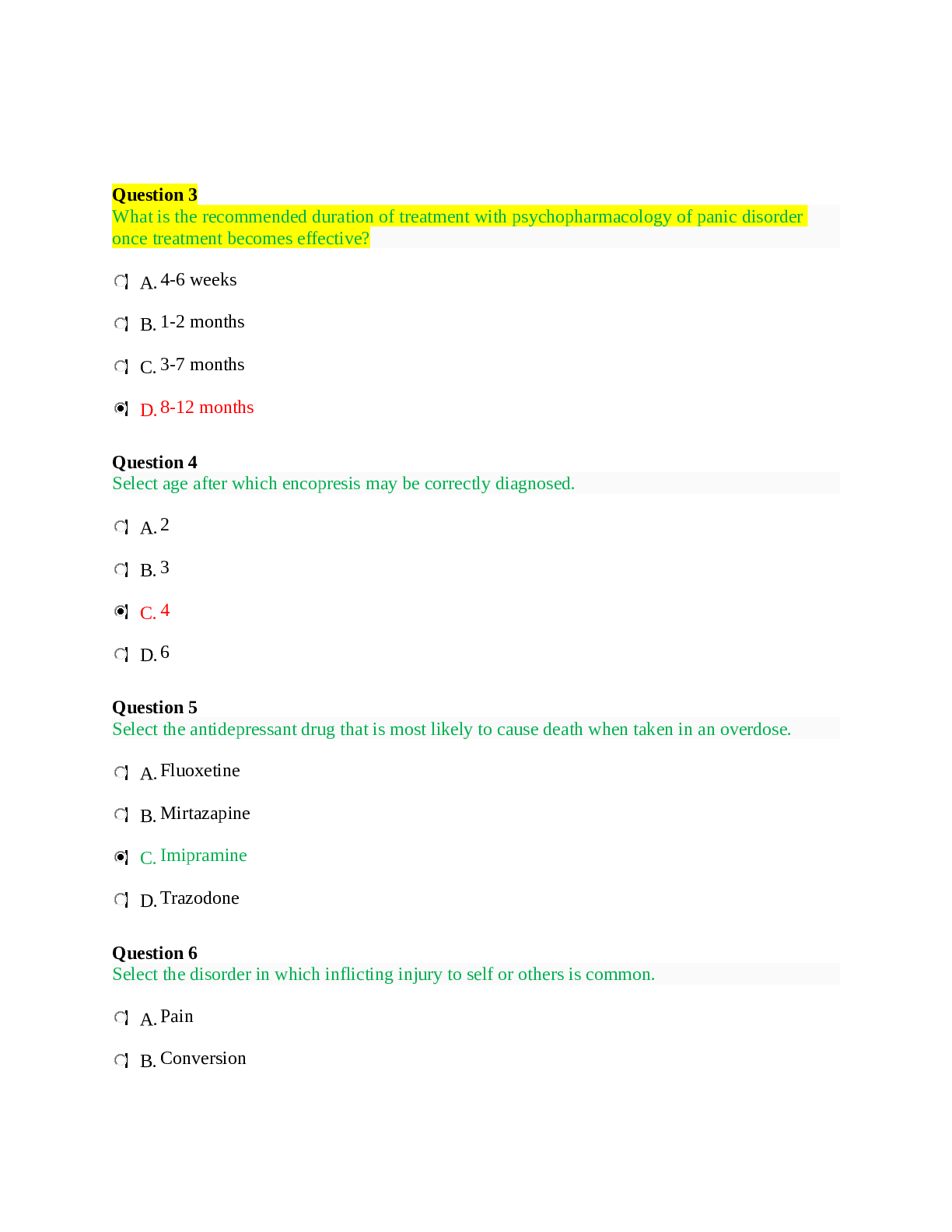
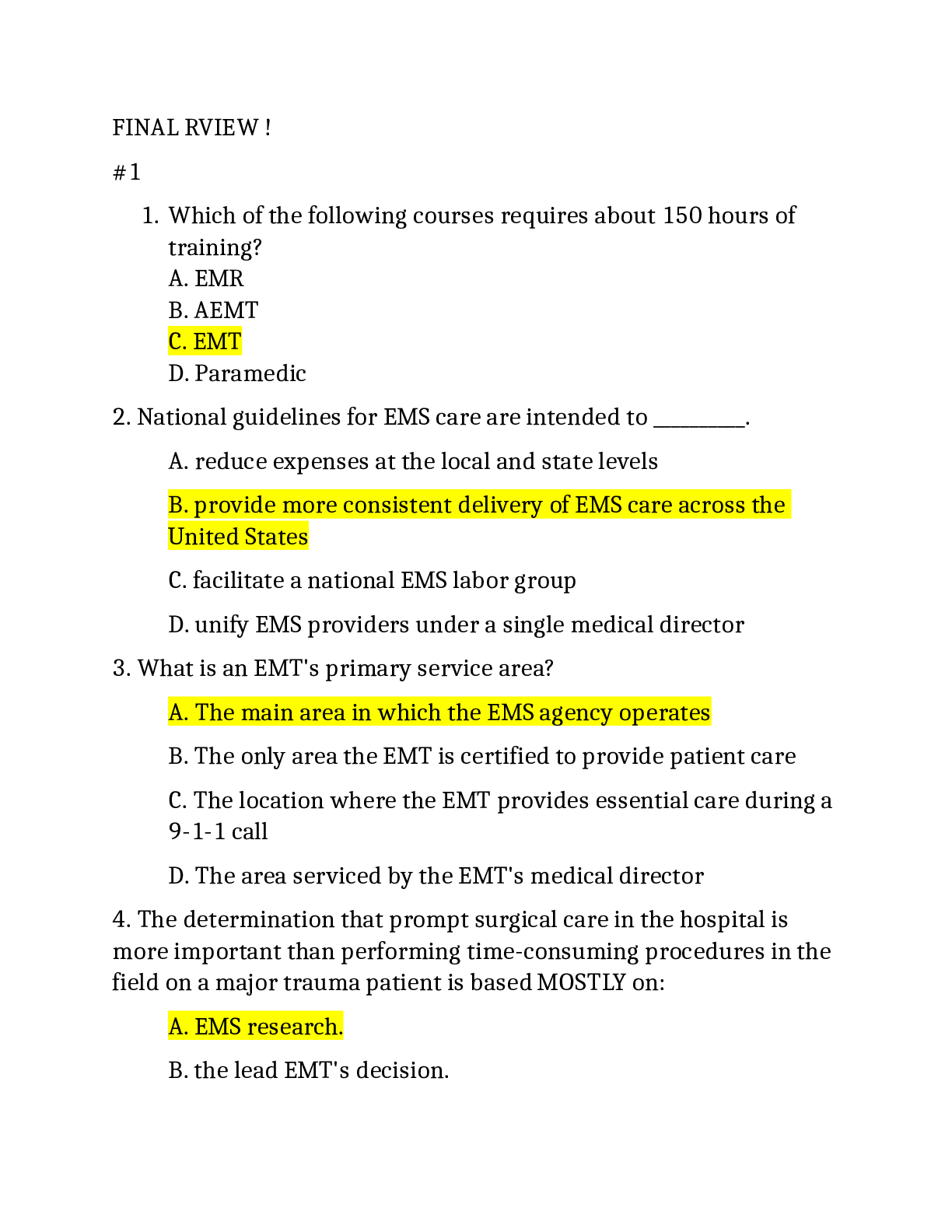
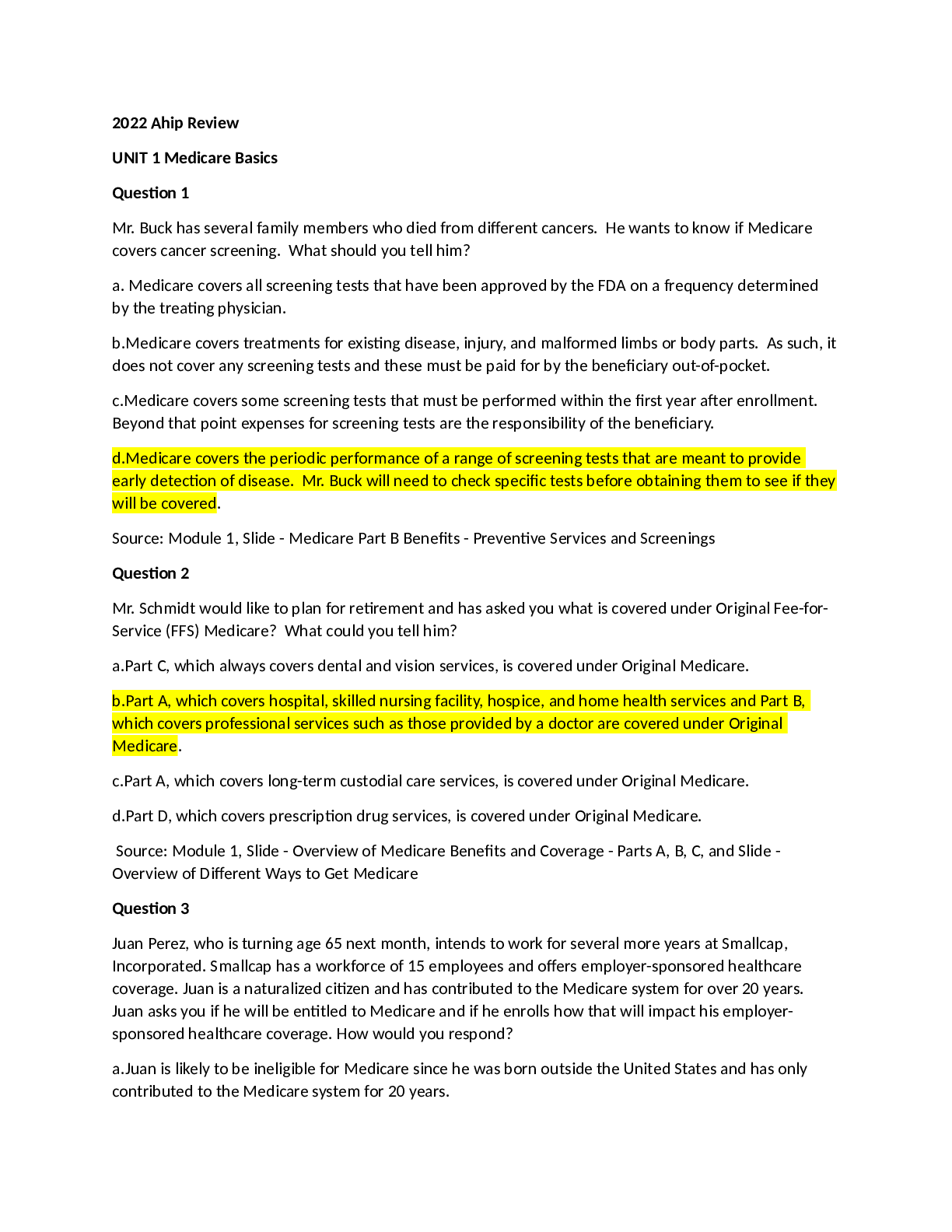
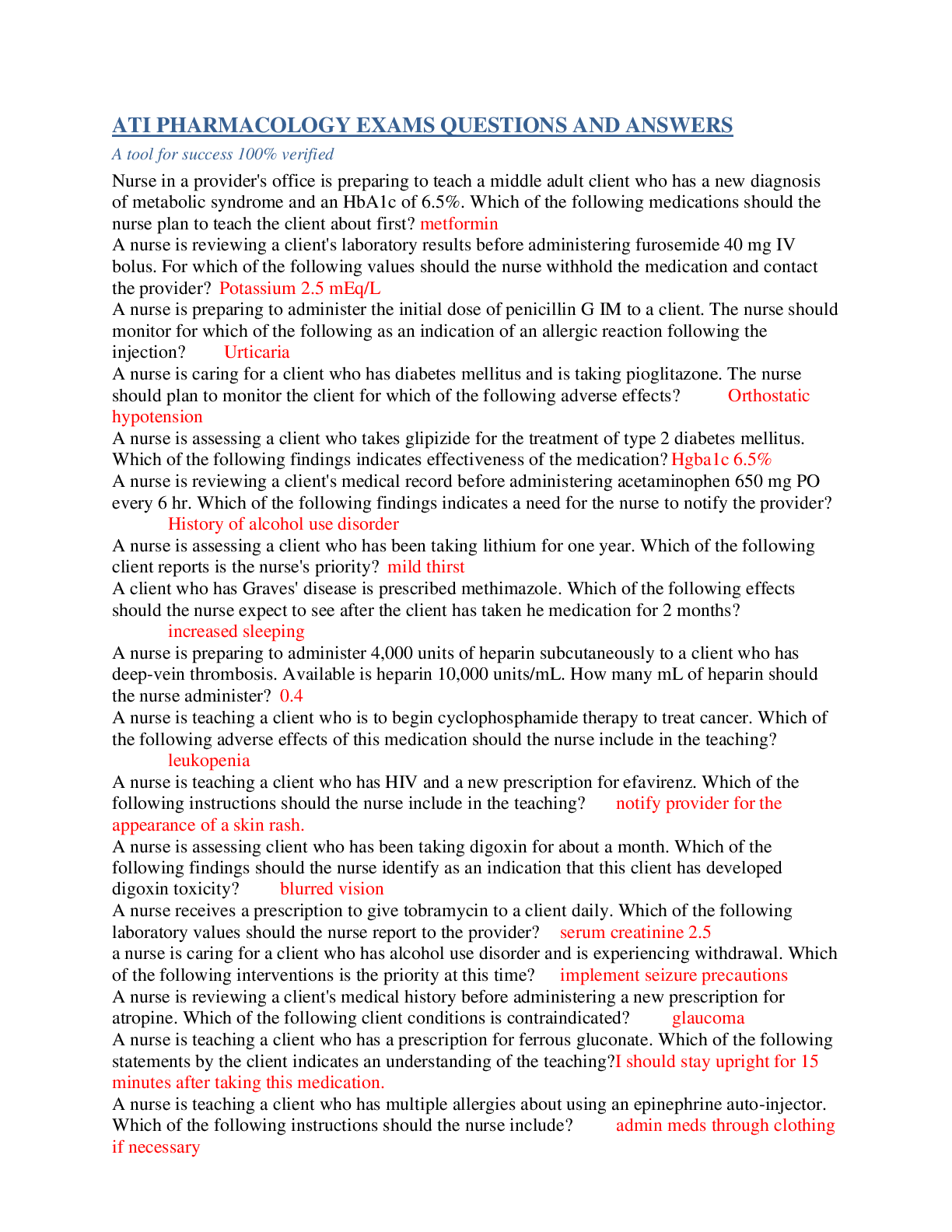
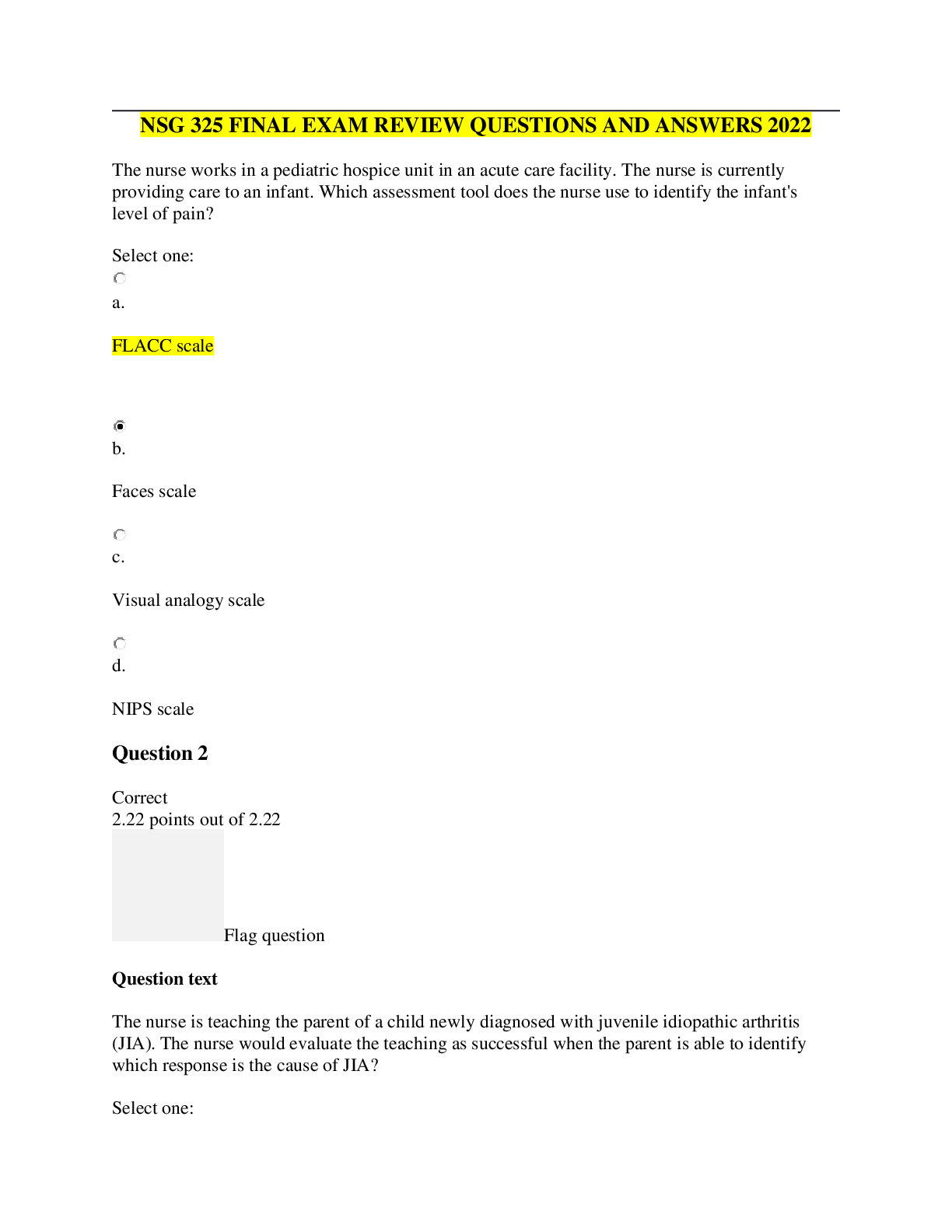
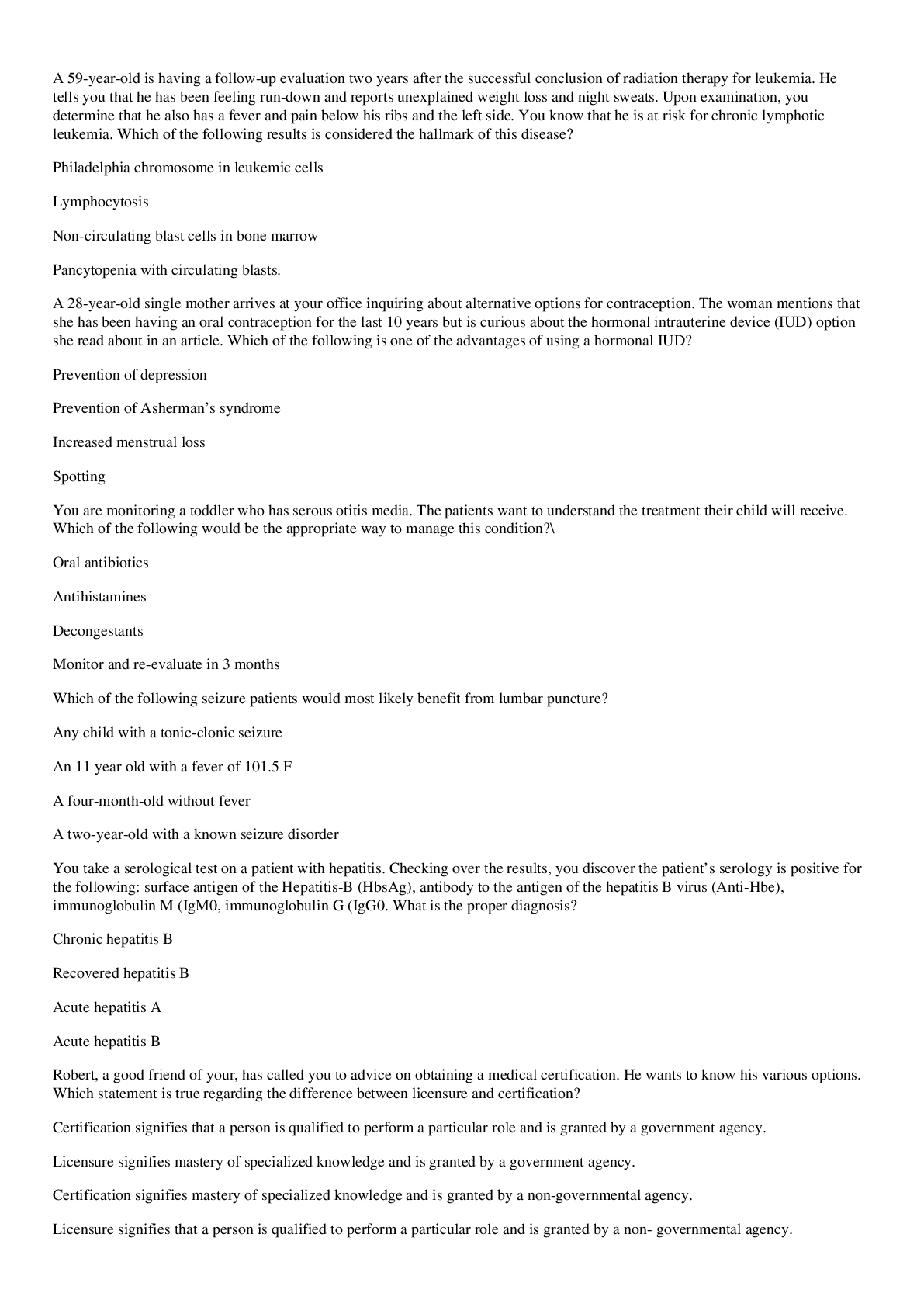
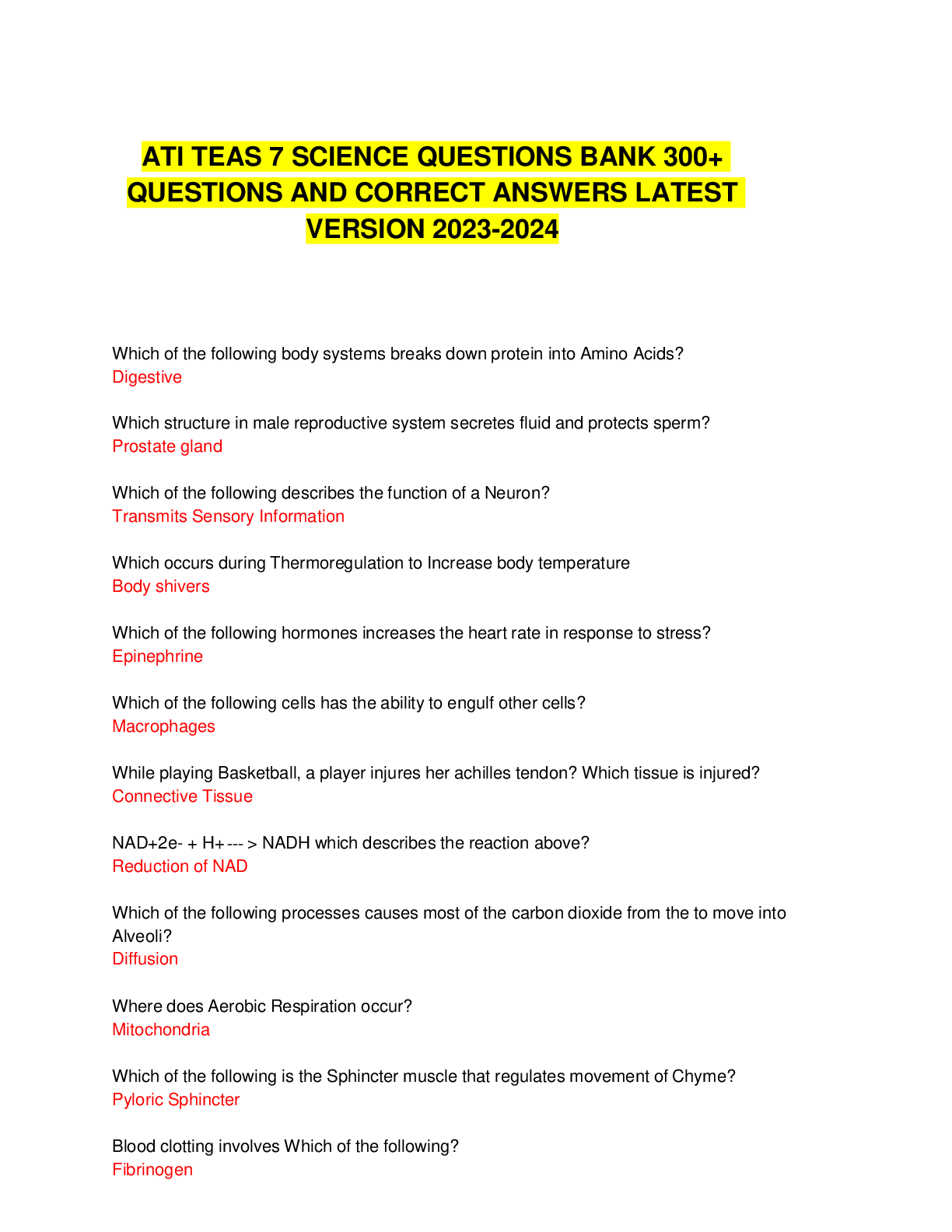
.png)
